Page

Ask The Expert- FMHCA Member Questions answered by President and Managing Partner of The Health Law Firm, George F. Indest, J.D., M.P.A., LL.M. Page 16




Page

Ask The Expert- FMHCA Member Questions answered by President and Managing Partner of The Health Law Firm, George F. Indest, J.D., M.P.A., LL.M. Page 16



I hope each of you is off to a great summer! While Summertime typically means vacations and some time off, please know your FMHCA team remains hard at work for you and for our profession.

As I write this for publication, I’m thinking of the legislative session which ended in early May. While we at FMHCA were disappointed by this Spring’s legislative session, we are optimistic we will achieve our goals in the next legislative session. We have also received a myriad of questions in response to some legislation that was passed, and please know we offer a live panel to address all these questions on August 2nd from 12 noon – 1:30 pm. Additionally, we welcome each of
committee during the Summer Bash Graduate Students, Registered Interns and Qualified Supervisors are all welcome! While we are enjoying summer, Fall is right around the corner. FMHCA will be holding elections for the positions of: PresidentElect, Secretary, Treasurer, and Northwest Regional Associate Director, Northeast Associate Regional Director, Southwest Associate Regional Director, and Southwest Associate Regional Director For more information about the upcoming election, please click here
Finally, if you find yourself with some downtime this summer and would like to catch up on some CEUs, just a reminder FMHCA has over 32 On-Demand webinars on the FMHCA website, and Live Webinars throughout the summer and, h h h f h
Page 9
A Call to Play More
Page 12
A psychodramatist's Guide to Spontaneity

Page 15
Imposter Syndrome as an Early Career Therapist
Page 16
Ask the Expert
Page 18
Practicing What We Teach
Page 20
FMHCA's Favorites
Page 23
FMHCA's Committee Updates

Page 27 The Loss of a Client
Page 28 (Feature Interview with John Davis)
Serving & Leading the Mental Health Community & Beyond!
Page 31
Should You Copyright Your Therapeutic Material
Page 34
Artificial Intelligence in Mental Health: A Promising Future
Page 37 72 Hours

Page 40
Page 41
Page 43

InSession Magazine is created and published quarterly by The Florida Mental Health Counselors Association (FMHCA).
FMHCA is a 501(c)(3) non for profit organization and chapter of the American Mental Health Counselors Association
FMHCA is the only organization in the state of Florida that works exclusively towards meeting the needs of Licensed Mental Health Counselors in each season of their profession through intentional and strengthbased advocacy, networking, accessible professional development, and legislative efforts
Let your voice be heard by becoming a FMHCA Member today!
Click here to view FMHCA's current Bylaws
CONTRIBUTE:
If you would like to write for InSession magazine or purchase Ad space in the next publication, please email: Naomi Rodriguez at naomi@flmhca org
THE INSESSION TEAM:
Naomi Rodriguez- Editor
Victoria Siegel, LMHC- Expert Advisor
ANTI-DISCRIMINATION POLICY:
There shall be no discrimination against any individual on the basis of ethic group, race, religion, gender, sexual orientation, age, or disability.
DISCLAIMER:
Information in InSession Magazine does not represent an official FMHCA policy or position and the acceptance of advertising does not constitute endorsement or approval by FMHCA of any advertised service or product InSession is crafted based on article submissions received Articles are categorized between Professional Experience Articles & Professional Resource Articles
Professional Experience Articles are writer's firstperson pieces about a topic related to their experience as a mental health professional, or an opinion about a trend in the mental health counseling field
Professional Resource Articles are in-depth pieces intended to provide insights for the author's clinical colleagues on how to be more effective with a particular type of client or a client with a particular disorder, or tips for running their practice more efficiently Each article is labeled with their article type
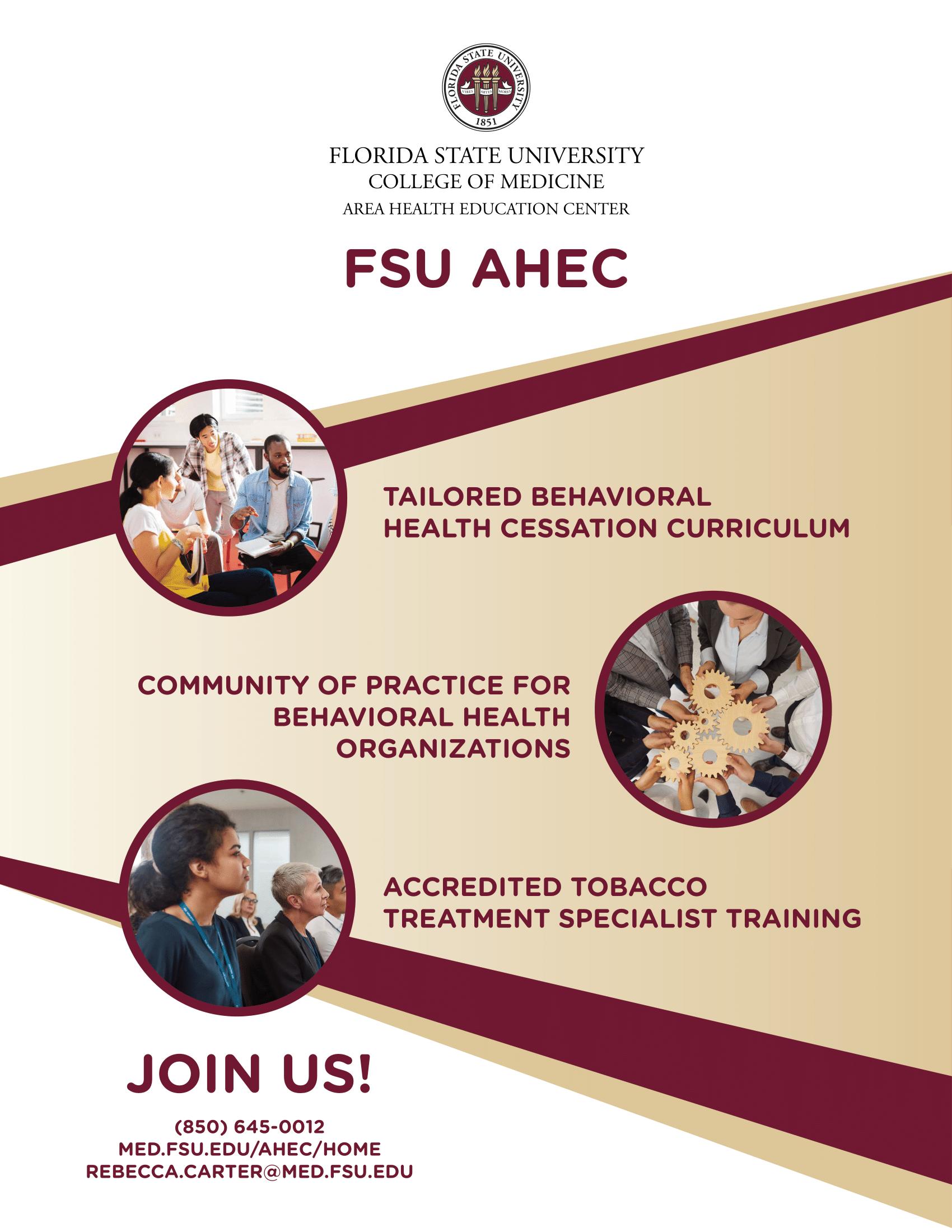
The Florida Mental Health Counselors Association (FMHCA) is the State Chapter of the American Mental Health Counselors Association (AMHCA) FMHCA is the only organization dedicated exclusively to meeting the professional needs of Florida’s Licensed Mental Health Counselors
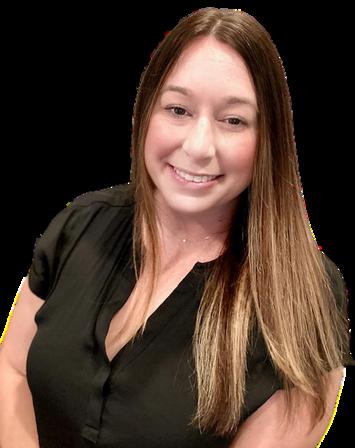

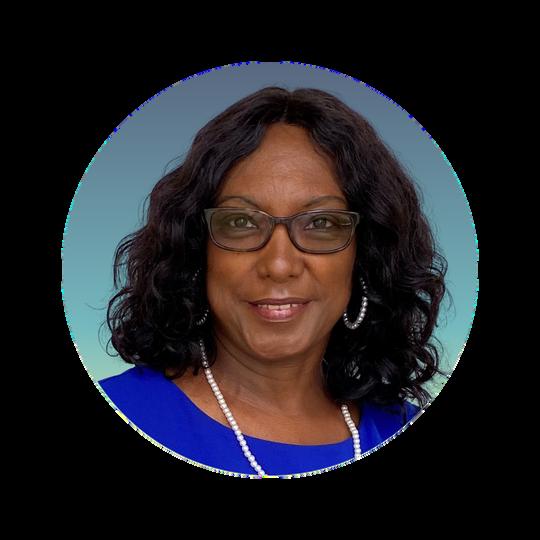


The mission of the FMHCA is to advance the profession of clinical mental health counseling through intentional and strengthbased advocacy, networking, professional development, legislative efforts, public education, and the promotion of positive mental health for our communities

Its sole purpose is to promote the profession of mental health counseling and the needs of our members as well as:
Provide a system for the exchange of professional information among mental health counselors through newsletters, journals or other scientific, educational and/or professional materials
Provide professional development programs for mental health counselors to update and enhance clinical competencies
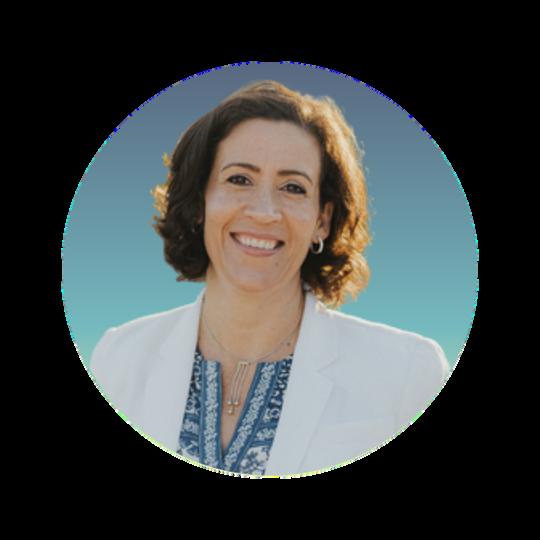

Promote legislation that recognizes and advances the profession of mental health counseling


Provide a public forum for mental health counselors to advocate for the social and emotional welfare of clients
Promote positive relations with mental health counselors and other mental health practitioners in all work settings to enhance the profession of mental health counseling

Contribute to the establishment and maintenance of minimum training standards for mental health counselors
Promote scientific research and inquiry into mental health concerns

Provide liaison on the state level with other professional organizations to promote the advancement of the mental health profession
Provide the public with information concerning the competencies and professional services of mental health counselors
Promote equitable licensure standards for mental health counselors through the state legislature


Children's mental health has been a growing concern over the last decade Even more so, following the COVID-19 pandemic, experienced isolation, and adjustments to the structure of academic instruction Families faced growing problems about how their children were coping, the impact of increased social media and screen time, limited social interaction, and the rising depression and suicide rates among youth.
As a play therapist, I found play a valuable tool for building bridges and creating a sense of "normalcy" while working in the school systems both virtually and after re-integration back into the face-to-face model of teaching and learning
The play was a healing modality that offered a non-judgmental and accepting space for a child to be who they were, where they could locate thoughts and feelings through projective activities, as words may have been hard to access.
Play aligns well to a child's developmental and cultural needs

Just the act of play provides opportunities for children to learn about themselves and others collaboratively
Social-emotional learning is integral to healthy children and
correlates to promoting successful mental health outcomes in and out of the classroom
Suppose a child receives 30-45 minutes of interrupted play time weekly to focus on a skill of regulation, a social problem, or identifying emotion with a trusting adult. In that case, the child can go forward throughout their day feeling more at ease and supported in their communities to face bullying (cyberbullying) issues, attention concerns, worry, fear, sadness, and other stressors.
Some other added benefits of play include:
It is safe. Children need to feel safe to address social, emotional, and behavioral concerns within the confounds of a container. Mental Health concerns still face stigmatization, and therapy, more especially play therapy, can provide added stabilization and advocacy around the emotional needs of children within their environments
It builds confidence. Letting the child lead is part of the play therapy process. They have the autonomy and flexibility to use their time as their heart desires. This experience stimulates
Professional Experience ArticleIt fosters opportunities for understanding. Play items are intentionally selected to resonate with children so adults can envision their worldviews and see their perceptions clearly. Engaging in play gets you closer to seeing through their eyes, and deeply connecting to their experience
If you are a parent: Make sure your children play. Yes, at recess or the nearest park. These times are also valuable, but also dedicate specific one-on-one time with your child/children at home.
If you are a therapist working with children: play! It is the most effective tool I have found to connect with young people. Take a continuing education course if you are in the market. Grab a few play items from the dollar store and see if you can put a therapeutic spin on it.
If you are a teacher, you could build a corner in your classroom where you select: building blocks, playdoh, art materials, stress
balls, sensory items, books, and games about different emotions or concerns your students face daily Ensure your students know where they are and how they can access them within your classroom.
Consult with a play therapist if you feel a student could benefit from more support from a provider in your school or within your area.
Written By: Ashton Williams-Wiley, LMHC, LPC, Registered Play Therapist
Ashton is a Licensed Mental Health Counselor in Florida and a Licensed Counselor in Virginia She holds a Registered Play Therapist credential and i pursuing a doctorate in Mind-Body Medicine specializing in Integrative Mental Health at Saybrook Univesity Ashton specializes in treating children, teens, and adults with various social and emotional needs Ashton uses play, expressive arts, and other holistic modalities to support expression and healing from anxiety, depression, anger, life adjustment, and behavioral concerns

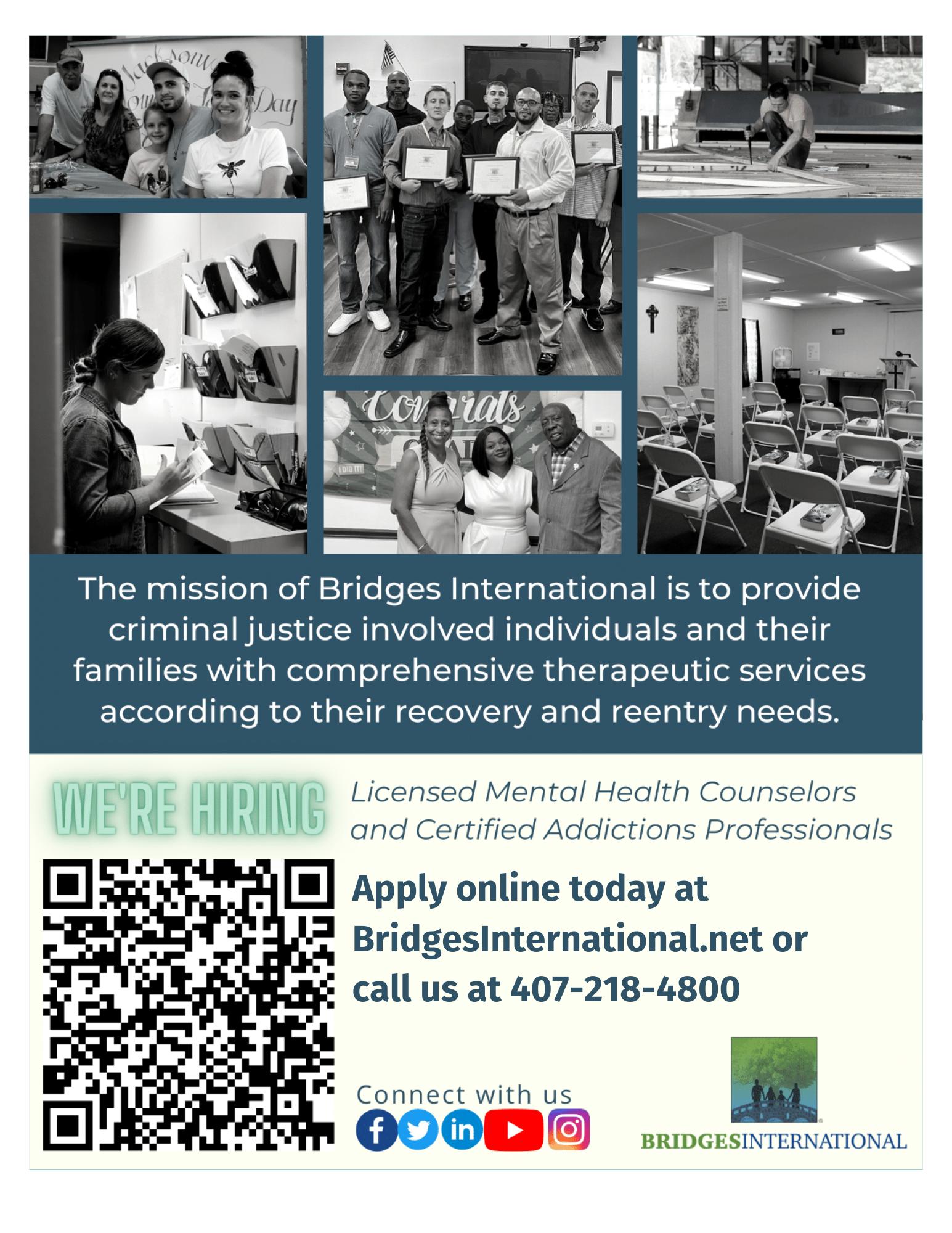
To a psychodramatist, spontaneity means so much more than doing something unplanned or acting unpredictable Although taking a last-minute trip or deciding to eat out at a new restaurant is fun and exciting, spontaneity as a therapeutic concept can be used to evaluate a client’s needs and identify a way forward Spontaneity to a psychodramatist is the single most important ingredient to change It’s the magic sauce that propels us from feeling stuck to a place of empowerment.When combined with a little creativity and a dash of inspiration, it’s the key component that can help us to keep moving forward in life. JL Moreno, the founder of psychodrama, considered spontaneity to be a fundamental influence in his theory of change. Today, psychodrama continues to fully embrace

Moreno defined spontaneity as the ability to respond with some degree of adequacy to a new situation and some degree of novelty to an old situation. To put it simply, change occurs when we take new action or when we do something we’ve always done but in a different way Moreno believed that adequate or healthy spontaneity was directly related to psychological health and wellbeing Interestingly, in his own research he observed that anxiety and spontaneity were inversely related When anxiety increases, spontaneity decreases and vice versa. In more recent times it is commonly believed that with anxiety comes rigidness, fear, avoidance, and false comfort. Since spontaneity is all about taking risks, trying something new, adapting flexibility, and leaning into discomfort it seems to be a good antidote for anxiety. Conversely, Moreno observed that pathological spontaneity (having too much) can be attributed to issues with substance abuse and struggles with impulse control. With anything in life, balance is key. This concept can be a useful guide in helping clients (and clinicians) to tap into some powerful parts of themselves if used correctly.
In psychodrama we use enactment and action through role play and role reversal to tap into creativity and spontaneity by helping clients to co-create those new or adequate responses. But you don’t have to be a psychodramatist to help clients access spontaneity. Awareness is a therapist’s best friend. When clients learn that spontaneity is about doing the uncomfortable things that they may prefer to avoid, a shift happens. For them, spontaneity can look like setting that boundary, using their assertive voice, getting their needs met, or creating more balance in their life It’s getting the nerve to go to their first AA meeting, and being able to imagine a future that is different It’s about tapping into the wise mind, the spontaneous part, or the reframed inner voice For others just coming to therapy is the first spontaneous step Doing the spontaneous thing helps us move from a place of rigidness to one of flexibility. Ask your clients, “Ok so what is the spontaneous thing that you did this week that moved you towards your goal?”
It's important to me as a clinician that I practice what I preach So, what is the spontaneous thing YOU did this week? Was it sticking to that boundary of not scheduling a late appointment, or actually charging for a last-minute cancelation? Was it finishing your progress notes before they pile up? Did you use your sick time that has been accruing forever to take the day off for something relaxing or fun? Maybe you finally read that book you bought months ago or took on a creative project. Self-care comes in many forms, and using your own spontaneous part to
guideyoucanbringafreshperspectivetodecidingwhatyou need Inconclusion,hereisyourpermissiontoact,even outrageously.Thisisyourcalltogowiththeflow,createmore balanceinyourlife,connectwithyourcreativity,oras psychodramatistslovetosay,daretobeadequatetoday!
Whetheryou’reinterestedinlearningmoreaboutpsychodrama orjustwanttoconnect,I’dlovetohearfromyou.Iamcurrently servingontheFMHCABoardofDirectorsfortheSouthwest Regionsopleasefeelfreetoreachouttomeforsupportor
Written By: Kerry Conca, LMHC, CPKerry is a Licensed Mental Health Counselor and serves on the FMHCA Board of Directors for the Southwest Region. She is a Certified Practitioner (CP) of Psychodrama, Sociometry, and Group Psychotherapy. Kerry co-founded Creative Wellnes where she offers psychodrama training and workshops for clinicians. She presently has a private practice in Tampa, Florida where she works with adolescents, young adults, and families

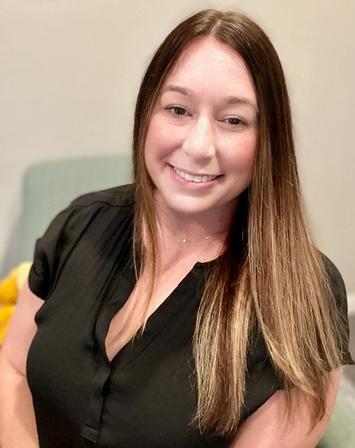

“How long have you been a therapist?” The question every newly minted clinician dreads. Do I look too young? Are they going to take me seriously? How can I prove my skills? Imposter syndrome rears its ugly head in these moments. We start to think, “maybe I’m not ready to see clients. “I need more training.” “I’m not cut out for this.”

As an early career therapist, I am no stranger to these feelings My youthful appearance and soft spoken voice at times still feels like a handicap to my professional success Self-doubt overshadows my years of clinical training and thousands of hours spent with clients I shift into a scarcity mindset and start focusing on the experience and wisdom I don’t have, rather than acknowledging the value I already possess. Upon sharing these feelings with fellow newly licensed clinicians, I quickly realized I’m not alone. In the spirit of supporting the upcoming generation of therapists, I want to share some of the mindset tools I use to combat these imposter feelings.
Adopt an abundance mindset. Scarcity mindset is a chronic feeling of not having enough of something, whether that be time, career prospects, experience, etc, and often becomes a self-fulfilling prophecy For early career therapists, this can look like not applying to better jobs, based on the belief that they don’t have enough experience to be considered. Or not reaching out to other professionals because it feels like they have nothing of value to offer an established clinician. On the contrary, an abundance mindset operates on the belief there are infinite opportunities for growth and learning. Rather than focusing on what they don’t have, abundance minded individuals
acknowledge the value they already possess and see opportunities for continued development An early career therapist with an abundance mindset shows up to their clientsessions confident in their skills and feels excited by the prospect to deepen their therapeutic knowledge and abilities throughout their professional careers.
Stop the comparisons. Comparing ourselves to others creates a distorted view of reality We tend to focus on the highlights and achievements of those we compare ourselves to, turning a blind eye to the challenges and sacrifices they experienced along their own journeys As new therapists, we are at risk of falling into the comparison trap, measuring our success against established clinicians and feeling a deep sense of inadequacy We start to chase external validation, rather than allowing authentic passion to be our guide, leading to more imposter feelings and self-doubt. An effective way to combat this comparison is by having a clear picture of your own path to success, strongly tied to your personal values. Once this path is clear in your mind, you can use it as an anchor to bring yourself back when the comparison traps starts to pull you away.
Ask for support. Being a new therapist can feel lonely at times, especially when you are working fully remote or in private practice Imposter syndrome grows in isolation Hearing about other therapist’s professional journeys, including the good, the bad, and the ugly helps normalize the challenges of being a novel clinician. Reaching out for support is one of the best strategies for stopping imposter feelings in their tracks. Find your tribe and lean on them when you start to question your worth as a helping professional.
Every clinician, whether they have 20 years of experience or two years of experience starts off as an early career therapist In summary, embrace your own career path, focus on the value you provide as a young professional, seek opportunities for growth, and lean on your support network Your age doesn’t have to hold you back.
Written By: Erika Barr, LMHCErika is a Florida state Licensed Mental Health Counselor and private practice owner based in Fort Lauderdale, FL She specializes in helping high achievers overcome the limiting self beliefs and scarcity mindset that keeps them from reaching their professional, sport, academic and relationship goals. She earned her Master’s Degree in Counseling and Sport Psychology from Boston University, becoming a certified mental performance consultant through the Association For Applied Sport Psychology.

FMHCA Member Questions answered by President and Managing Partner of The Health Law Firm, George F Indest, J
,
This issue's questions concentrate on gender treatment and transgender issues, an area of great concern to health providers in Florida, due, primarily, to its politicization by Florida's governmental leaders. The recent passage of Florida Senate Bill (SB) 254 ("Treatments for Sex Reassignment"), signed into law May 17, 2023, placed limitations on treatment that Florida health providers could give to transgender patients. SB 254 was codified as Chapter 2023-90, Florida Laws.
SB 254 prohibits gender-affirming care for anyone under the age of 18, and places restrictions on treatment for adult patients
For the most part, the provisions of SB 254 do not apply to mental health counselors, because the services they perform are not considered "treatment" under the new law.
For a copy of SB 254, which is only ten pages long, you may click here or follow this link
This is a new area of law that will be in constant flux over the next few years. It may change every day. In fact, as of this writing, there is an injunction in effect that prevents the enforcement of SB 254. Other court challenges and appeals can be expected over the next several years.
QAre there any specific legal or liability concerns that mental health professionals have in working with gender-diverse youth? contains requirements and prohibitions for medical doctors and osteopathic physicians
ANot really However, mental health professionals in Florida should read SB 254 which was recently passed, just to be familiar with it For the most part, it does not apply to services that mental health counselors normally provide SB 254
Other than that, mental health counselors should also review the standards and guidelines of the World Professional Association for Transgender Health (WPATH) and the Standards of Care for Transgender and Gender Diverse People that are published in the May 18, 2023, Journal of the American Medical Association (JAMA), which can be accessed here
QAm I required to make a report to the Florida Department of Children and Families (DCF) if I learn a minor is receiving gender-affirming medical care or that a provider is providing it?
No A
QCan a divorced parent subpoena me for records or sue me if they ask for an emergency custody injunction on the suspicion of the other parent providing gender-affirming medical care to their shared child? If so, to what degree
must I comply?
AThe standard answer to the question "Can someone subpoena me for records or sue me?" is: "This is America, where anyone can sue anyone else for anything "
Let me try to provide an answer that may better respond to the issues about which the writer is concerned
The regular procedures for responding to subpoenas and court orders apply to this situation. This does not change because of the type of care the child may be receiving
If you receive a subpoena for records, especially where one parent may be suing another parent, consult an experienced health attorney immediately If you have good professional liability insurance, it may pay your legal fees for an attorney to deal with this issue for you and represent you in court if necessary Do not just ignore a court order Your attorney can file a valid objection with the court if there is one
Remember that unless there is a court order to the contrary of which you have a copy, then either parent can consent to treatment of their minor child or obtain the records of the treatment of the minor child This would be for any reason
Regardless, it may be desirable to require a court hearing and obtain a court order on the issue prior to producing the record
Let your attorney handle this.
If you receive a court order, you should comply with it, unless your attorney advises a different course of action, such as filing an objection or requesting a hearing before the judge.
Mr. Indest is board certified by The Florida Bar in the legal specialty of health law. He is the President and Managing Partner of The Health Law Firm, based in Orlando, Florida The information provided in this article is for educational and informational purposes only and does not constitute the provision of legal advice.
Want your question featured in the next InSession issue? Submit Here Must be a FMHCA member to submit. Become a FMHCA member by clicking here.

The FMHCA Store has new designs each month of t-shirts, mugs, stickers, notebooks, hoodies, crewnecks, & more!

Each campaign benefits The Florida Mental Health Counselors Association.

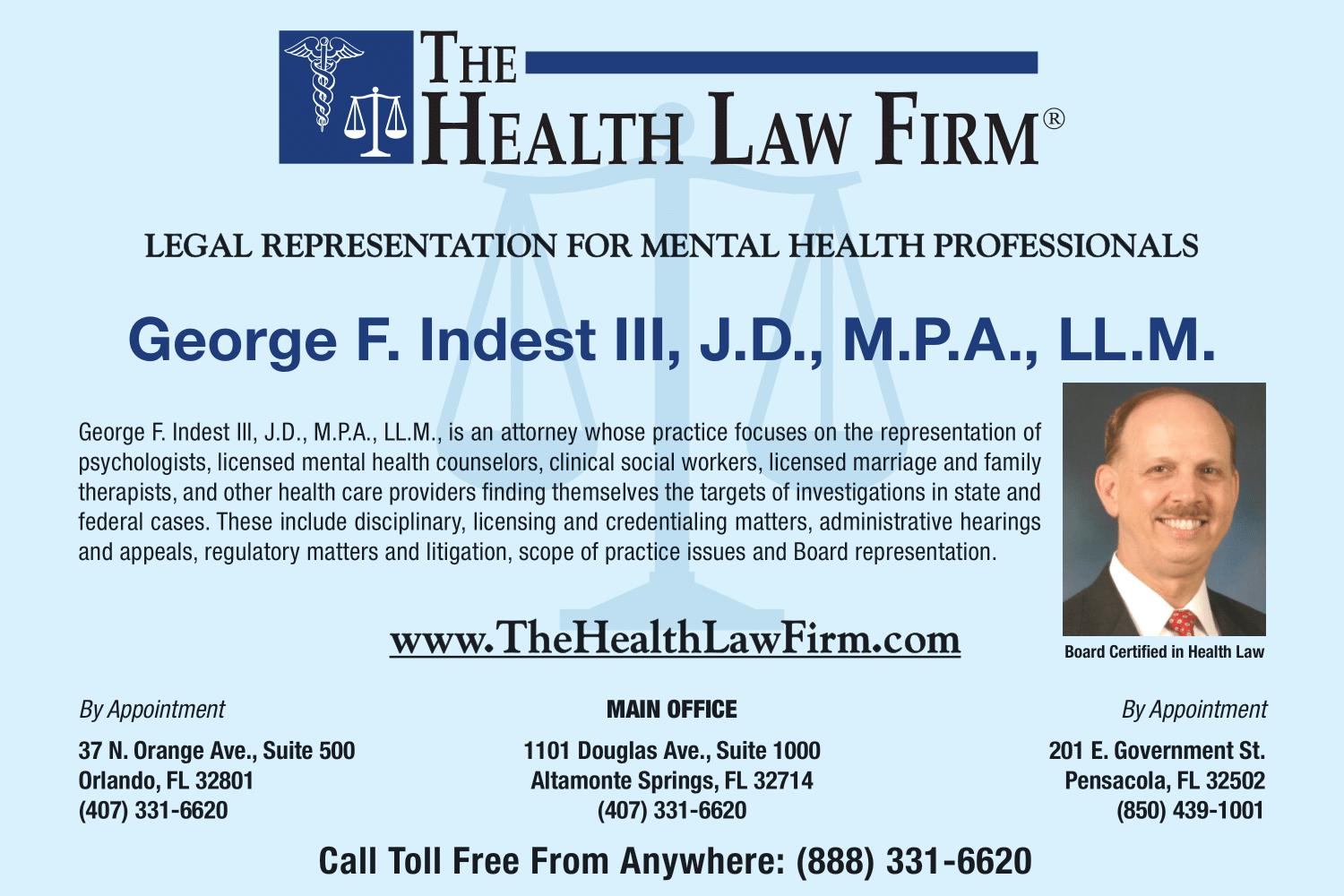
Shop Now

“If
As therapists, we don’t always practice what we preach. There are skills that become natural for us and others we find that do not work. There are new philosophies we accept and those we reject. The nature of the world is dialectical, including our work. Dialectical Behavior Therapy (DBT) was created as a result of Marsha Linehan’s goal of creating a treatment she once needed herself. In the spirit of how DBT was created, I am learning these skills myself to be able to teach them more effectively to my clients, offer more accurate empathetic understanding, and to take care of myself How can I ask my clients to do something I do not do myself?


My implementation of DBT is far from perfect. A teenager disengages from our conversations each session when I transition into psychoeducation of the skills. Despite specifically identifying DBT as preference for our sessions, she appears to be uninterested. After alternating the times and days we met, including a parent, and a variety of different attempts at psychoeducation, nothing changed It was only after my personal practice of DBT skills that I have been able to have a more natural discussion of the skills with her each week It is easier to discuss and understand what we have experienced ourselves
My clients who meet the typical description of who DBT would
be beneficial for those with Borderline Personality traits or anyone who experiences intense emotions are my clients who show the most initial resistance to learning and practicing these life changing skills. “I only did half of the chapter this week. I hope that’s okay. This chapter is heavy,” said a woman to me last week. She was assigned as homework, several times, to complete a chapter on emotional regulation skills in her DBT workbook. I smiled I am prone to the same resistance. She only did half after weeks of discussing the importance of it. Yes, and she is intentional, reading each page, completing each exercise. Completing even the exercises she does not want to do! That is actually more than I do I pick and choose, focusing on my “favorites.” She is right, it is actually heavy work. In meeting her where she is at, accepting quality over quantity, I have observed a meaningful change in her Her cutting has stopped and urges are increasingly rare now There has also been an increase in her self confidence and self-trust as a result As a result of my own practice, I can show up with more accurate empathic understanding
As Linehan reminds us in Building a Life Worth Living, “I’ve got to learn the methods of acceptance myself, in order to be able to teach acceptance more effectively to my clients.” The therapeutic relationship and work we do as a whole embodies the essence of DBT Accept and work towards change. Occasionally, I need to observe my “mindlessness” in session, take a deep breath, and refocus I need to be in the present to provide my best work Regularly, I need to cultivate a sense of lovingkindness and release judgements With lovingkindness and fewer judgements, I can more fully accept my clients where they are at and my own progress in the evolution of my work. It is through this I can maintain a human-first mindset. My own resistance to committed change emerges when I am upset or managing anxiety, and now I can shift from not only rolling with my clients’ resistance but to having a greater sense of compassion, because now I have been there too. My overall sense of self-compassion increases in recognizing that, once again, I am human and working towards change, just as my clients are.
Written By: Karli Gallo, Registered Mental Health Counselor InternKarli is a Registered Mental Health Counselor
Intern working in private practice with Seasons Psychotherapy Associates She is trained in EMDR and seeking certification She has a passion for w those who endure complex trauma and generational trauma, depression, anxiety, eating disorders, grief and loss, and spirituality concerns

I can do it, you can do it ”
-Marsha M. Linehan from Building a Life Worth Living
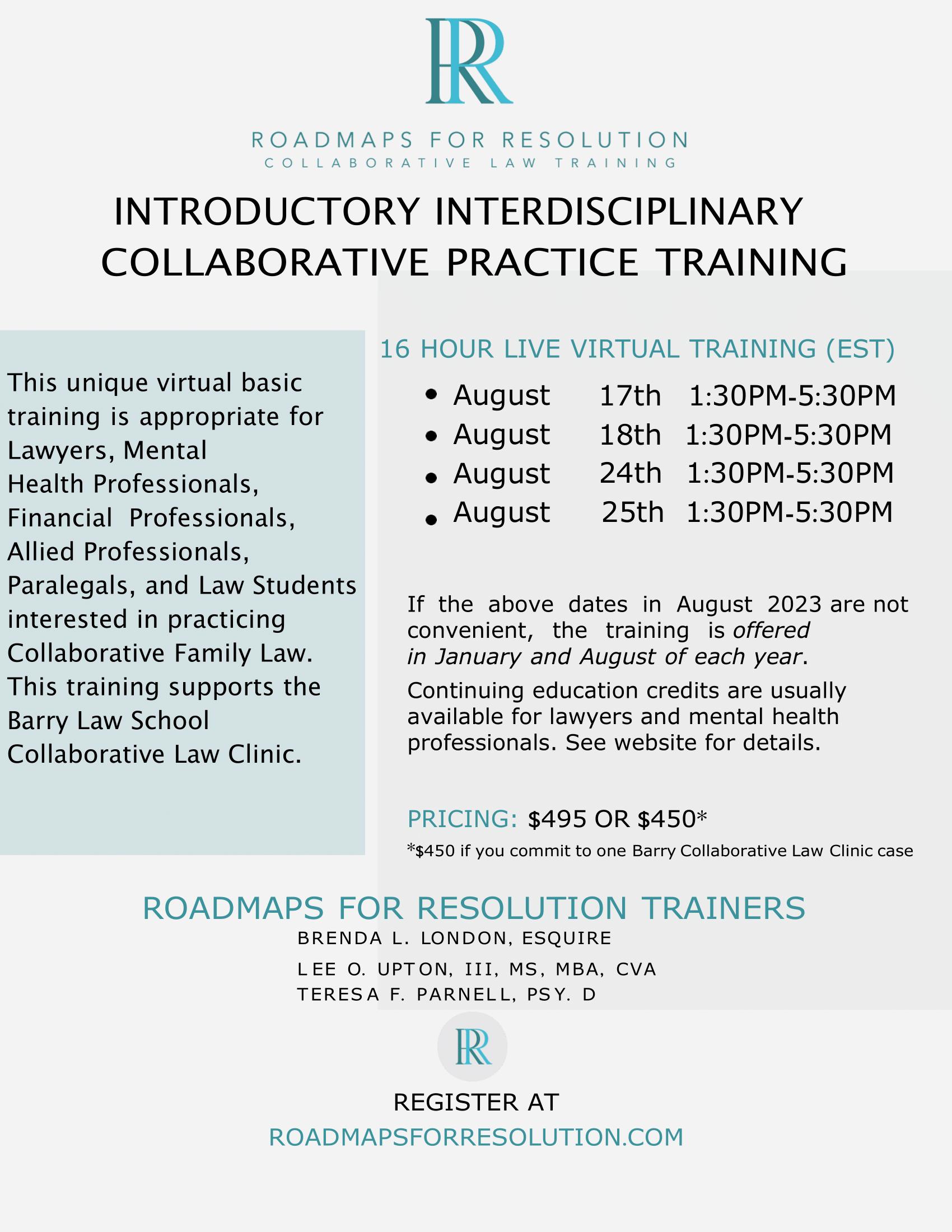

The leading family communications game. Players progress along the playing board as they answer questions such as, “What are the four most important things in your life?” and “ What do you think life would be like in 100 years?” This non-competitive game can be a great ice-breaker or a serious exchange of thoughts, feelings and ideas
The gnomes’ hats are uniquely shaped to access even the smallest of pressure points in the hands Heat or cool stones for a spaworthy at-home treatment


If there’s one thing that binds us together across generations, it’s food So it shouldn’t surprise us that even some of the most well-known figures in history had favorite dishes that they cherished enough to put in writing This fascinating subscription series delivers detailed replicas of real handwritten recipes from renowned names like George Washington, Emily Dickinson, and Rosa Parks

The Ninja™ CREAMi™ transforms frozen solid bases into ice cream, sorbets, milkshakes, and more at the touch of a button Ninja’s Creamify technology enables the CREAMi™ to break down a uniformly frozen block into an incredibly smooth, creamy texture in minutes From healthy to indulgent, the Ninja™ CREAMi™ can create frozen treats as unique as you are!
Metalwork artist Derek Martin's unique piece of functional art was inspired by repeated thievery Birds used to swoop off with the knitting yarn his wife tied to garden stakes to mark the rows Thus was hatched the idea to make an elegant sculpture to supply birds with nest materials Derek welded steel wire into spiral spheres and stuffed them with wool bits, cotton from an old futon, even their pets' fur Do the same, and enjoy spotting nests made with your donations During winter, put bird seed balls inside, instead, and help flying wildlife all year
Mission control, we ’ ve achieved mindfulness Take a moment to unwind
James Clear, one of the world's leading experts on habit formation, reveals practical strategies that will teach you exactly how to form good habits, break bad ones, and master the tiny behaviors that lead to remarkable results.
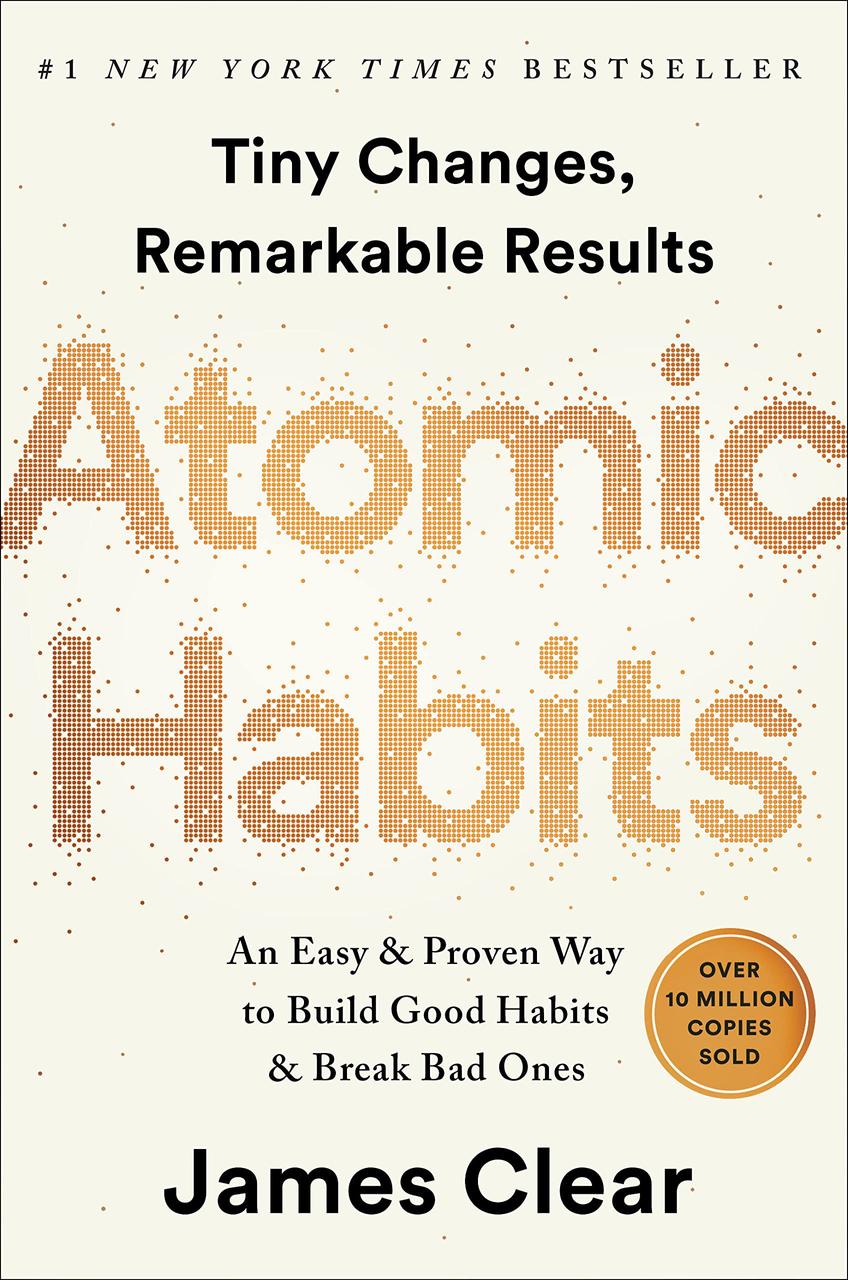
Bad habits repeat themselves again and again not because you don't want to change, but because you have the wrong system for change. You do not rise to the level of your goals. You fall to the level of your systems. Here, you'll get a proven system that can take you to new heights.
and lose yourself on the tranquil Martian surface
Go from astronaut to relax-tronaut by placing this calming Mars-inspired Zen garden in your workspace
Features a resin tray, a bag of red sand, four lava rocks, an astronaut figurine, a Martian rover, and a copper-finish rake tool


Drag the dual-purpose rake to find tranquility while leaving mysterious alien symbols in the sand.
Flip the tool over and use its crater-shaped end to recreate the red planet’s meteorite-battered surface.

This mindful deck helps you reinforce positive thoughts. Here’s how it works: light a candle, shuffle the deck, and pull a card. Read the card which starts with an "I am" statement aloud to yourself, and let the words wash over you Repeat the ritual daily, and you’ll start to notice little mental shifts Before you know it, you’ll be rooting for you
Want to start a new hobby but do not know where to begin? Afraid to kill another garden? Try out a DIY Craft Kit! These beginner kits include: pre-cut and printed leaves, pre-cut shapes, and floral wire



Sure, you could freeze those overripe bananas for bread or smoothies But wouldn’t it be nice if they just stayed yellow longer? Try a hat That is, a hat designed to preserve your favorite tropical treat!

Just about everything tastes better when it’s grilled and enjoyed outdoors so why not pizza, too? This ingenious little oven is all you need to make amazing crispy pizza on the grill. Add your toppings to the crust, place your pizza in the mini-oven with the lid on, and pop it on the grill. In less than 10 minutes you’ll have personal-size pizzaliciousness with a crust worthy of your favorite brick-oven pizzeria The pizza maker is less than eight inches in diameter, so you can bring it along anywhere you want to cook out
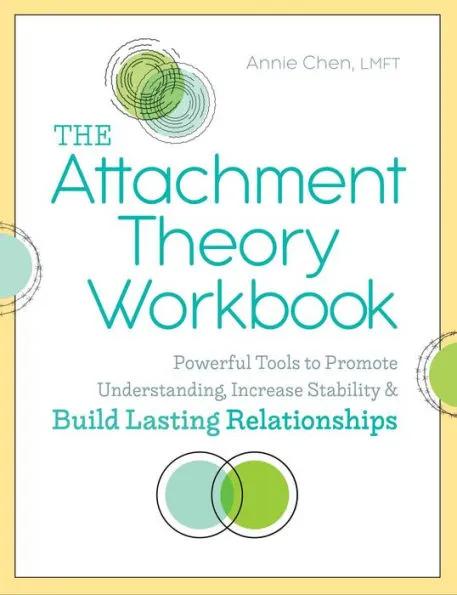
Using these essential-oil-blend aromatherapy patches is as simple as: Press one on your skin; breathe in; feel good for up to eight hours That's it They don't leak, get greasy, or leave sticky stuff on you skin or your clothing Since the essential oils never touch your body, they don't cause allergic reactions; all they do is boost your mood We recommend taking them everywhere Eight tabs per kit Made in Minnesota
This menthol-infused cube is said to reduce pain and inflammation Massage the soothing square onto game-day or post-workout DOMS (delayed onset muscle soreness), and its ingredients get right to work

Essential oils, like winter mint and arnica, add to the "ahh"s delivering tingling sensations achy areas adore.
This expert advice helps you explore your own attachment style as well as identify the attachment style of others, so you can better understand their perspective
This workbook offers:
Chia seeds may be small, but they’re incredibly rich in nutrients. A staple in the ancient Aztec and Maya diets, these seeds have been touted for their health benefits for centuries. They contain antioxidants, minerals, fiber, and omega-3 fatty acids These nutrients play a role in supporting multiple body functions and systems

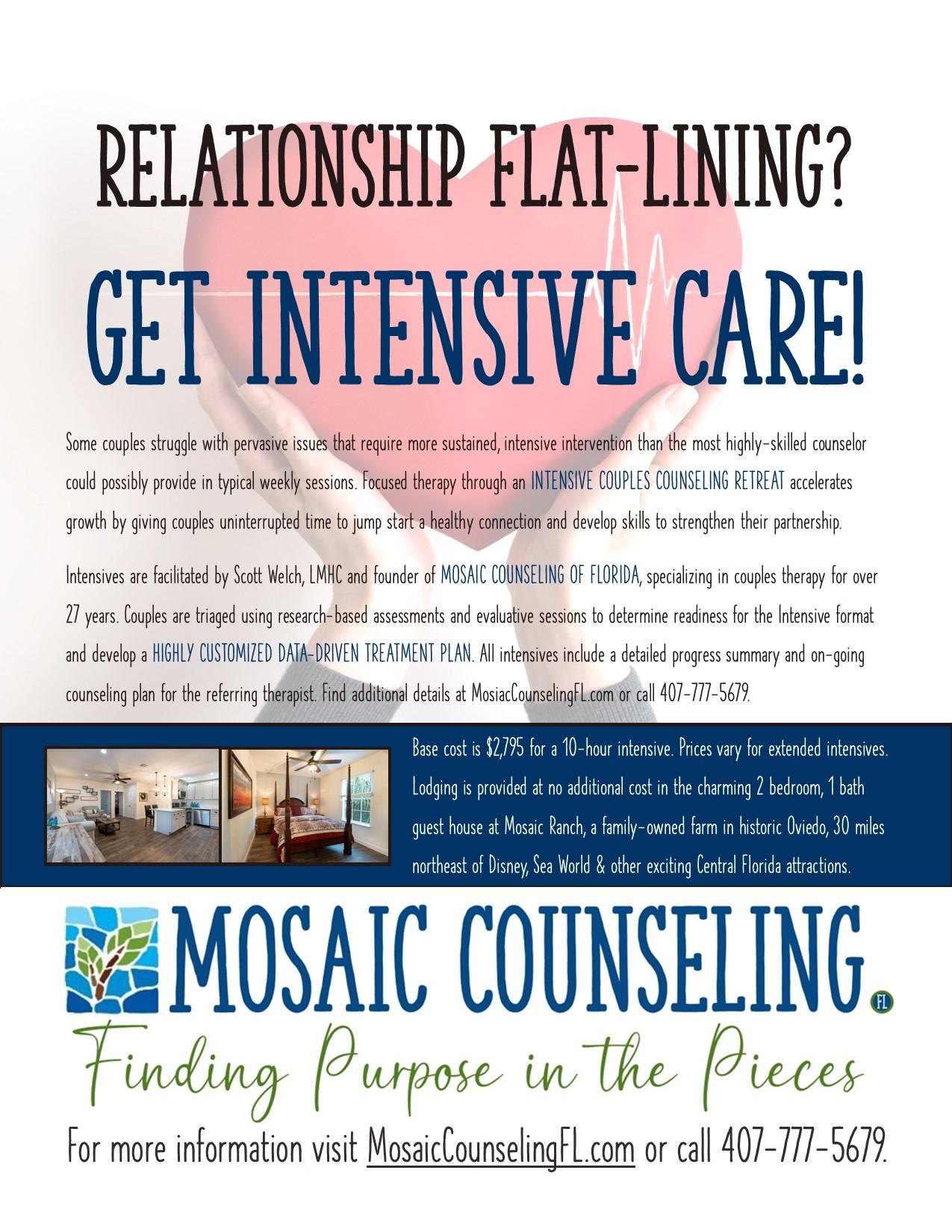
Committee Chair: Aaron Norton, PhD, LMHC, LMFT
What happened with FMHCA’s Legislative Priorities During the 2023 Legislative Session?
The 2023 legislative session is over. Here's a breakdown of some of the bills we ' ve been monitoring that impact our profession: Overall, this legislative session was not very eventful for healthcare-related issues. FMHCA's lobbyist will be disseminating a summary report of the legislative session within the next couple of weeks, but here is a preview of some of what may be shared:
SB 700, which would have addressed several key priorities for FMHCA (i e , renaming registered interns, removing the requirement for interns in private practice to have a licensed professional on the premises when providing clinical services, adding 491 board licensees to a list of healthcare professionals whom the court can appoint for expert witness testimony in certain types of criminal cases), was not passed, primarily because no House companion version of the bill was filed. However, we feel optimistic about several FMHCA priorities that the bill sought to address for the 2024 legislative session. We were hoping that HB 1227 could be amended to include our forensic priorities. Though this did not happen (and the bill was not successful), we succeeded in drawing attention to the issue and garnering support, which we believe will be most helpful in the next legislative session
FMHCA opposed SB 1364, which would have obligated the State to provide licenses to most professionals who are licensed elsewhere for at least two years We were successful in advocating for an exclusion for 491 board licensees in the House version of that bill Ultimately, the bill was defeated, and we consider this a victory for FMHCA. Two bills were passed that have raised concerns about ethical issues in counseling.
Governor DeSantis recently signed two bills into law raising ethical concerns for counselors in Florida. The first is SB 254. Among other things, this bill restricts physicians from prescribing puberty blockers and providing sex-reassignment surgeries to minors (with an exclusion built in for some minors who are already receiving such care). Such restrictions have
recently been enacted in several other states and in some countries in Europe. Though this law does not appear to prohibit 491 board licensees from providing gender affirming psychotherapy, it will impact adolescent clients who do not wish to wait until they are adults to be prescribed puberty blockers or participate in sex-reassignment surgeries
The second is SB 1580, which allows healthcare providers to decline to participate in healthcare services that conflict with the provider’s documented conscience-based (i.e., moral, ethical, or religious) objections. Additionally, it appears to prohibit universities from taking disciplinary actions against healthcare students who have appropriately raised such objections. This bill was backed by the Florida Medical Association and, based on a review of the staff analysis related to the bill, appears to have initially been written, in part, with the intention of allowing physicians to refuse to provide abortions if abortions conflict with their moral and religious beliefs However, the bill can adversely impact the counseling profession, regardless of whether such impact was intentional, if, for example, a counselor (or counseling student) were to refuse care to clients because of clashes between the counselor's religious beliefs and the client's sexual orientation or gender identity.
The codes of ethics of both AMHCA (I.C.2.a on page 8 of 2020 edition) and ACA (C.5 on page 9, of the 2014 edition) prohibit counselors from discriminating against clients based on sexual orientation and gender identity and from denying care based solely on the counselor’s personal beliefs (see A 11 b on page 6 of the 2014 ACA Code of Ethics and I A 4 d on page 4 of the 2020 AMHCA Code of Ethics)
We at FMHCA stress that while legal and ethical standards frequently overlap, they sometimes clash. Legal standards generally establish minimal standards for the profession, whereas ethical standards often hold counselors to a higher standard.
FMHCA calls upon counselors to hold themselves to a higher ethical standard, even when the law permits them to do otherwise.
Member Question: Did Governor DeSantis Veto the Counseling Compact?
FMHCA’s Government Relations Committee (GRC) has received
stories announcing that Governor DeSantis vetoed HB 385, a bill that would authorize fees to be collected for counselors in other states to apply for the privilege to practice in Florida. Some members have questioned whether this veto means that (a) Governor DeSantis no longer supports the Counseling Compact and/or (b) Florida is no longer part of the Counseling Compact.
FMHCA’s GRC has been advised by our lobbyist that Governor DeSantis is following through with a commitment to veto all fee bills and that the veto is not an indicator that he does not support the compact, which he signed into law on 4/6/22 in a historic action making Florida one of the first 10 states to join the compact We have been advised by the 491 Board that the bill was not necessary in order for Florida to maintain its place in the Counseling Compact, that applicants seeking the privilege to practice in Florida will be funded through the 491 Board’s trust fund, and that the Board is moving forward with implementation of the compact, which is projected to go into effect in early 2024.
We hope this clarification will help ease the minds of members who have expressed concern about the veto, and we wish to reiterate our commitment to supporting the Counseling Compact in Florida
On 12/23/22, President Biden signed the Mental Health Access Improvement Act into law, allowing CMHCs and MFTs to enroll as Medicare providers This is the result of decades of advocacy! Enrollment starts 1/1/24 Between now and then, CMHS is writing regulations on how CMHCs work with Medicare. There is some concern that CMHCs could be excluded from access to certain CPT codes (e.g., psychological testing), which could trigger a chain reaction of limitations on scope of practice. AMHCA is part of a Medicare Mental Health Workforce Coalition consisting of 13 organizations meeting weekly with CMS and educating CMHCs about working with Medicare
AMHCA has been advising CMS that counselors should have full and equal access to CPT codes related to both psychotherapy and psychological evaluation
Registered Intern & Graduate Student Committee Committee chair: Laura Peddie-Bravo, LMHC, NCC
Greetings & happy Summer! The Graduate Student and Registered Mental Health Counselor intern Committee held its first meeting of 2023 in April. The next meeting will take place during FMHCA’s Graduate Student and Registered Mental Health Counselor Intern Summer Bash on Thursday, July 12th from 12 noon to 1 pm. Graduate Students, Registered Mental
Health Counselor Interns and Qualified Supervisors are all welcome to attend The Summer Bash will contain everything a recent graduate/RMHCI needs for licensure: HIV course, Passing the NCMHCE Exam, Florida Laws and Rules, The Do’s and Don’ts of Being a RMHCI, and a FREE Mixer. Everything will be online, so all Graduate Students and Interns across the state of Florida will be able to attend. Here is the link for more details or to register. Please spread the word! We hope you’ll join us! And just a reminder, our committee has its own Forum on the FMHCA website. Here you can find recordings of previous meetings, tips, resources and more! Any committee member is welcome to post on in our Forum. Examples of posts are: Questions for the committee members, information you think would be helpful for Graduate Students and/or Interns, or looking for Qualified Supervisors or placements for internship If you have any questions about this committee, or would like to submit any suggestions for topics for us to cover, please feel free to contact Laura Peddie-Bravo via email at:
LauraPeddieBravoLMHC@gmail com
Indigenous Mental Health Subcommittee
Committee Chair: William Gouveia, PhD, CCJAP
This quarter the FMHCA Indigenous Mental Health Outreach Subcommittee Report continued outreach efforts with the behavioral health clinical directors of the Seminole Nation of Florida and the Miccosukee Tribe of Florida, the only two federally recognized tribes in the State of Florida.
In addition, the subcommittee communicated with the Indigenous Studies deans of the University of Miami (NAGIS)Native and Global Indigenous Studies Program, University of Florida (IDS)-American Indian and Indigenous Studies Program, University of Central Florida (NAS)-Native American Studies Program and the newly recreated Indian studies program of the Florida State University.
Dr Gouveia completed the FMHCA 2023 Virtual Summit on Qualified Supervision Training. As a First Nation Mi’kmaq descendant Dr. Gouveia was chosen to represent FMHCA at the IAWG-Indigenous Apology Work Group as well as the 2022 NAMI Annual Meeting in Arizona which was attended by tribal leaders and tribal program administrators from around the nation.
The subcommittee also joined two leading national tribal assistance programs- SAMHSA’s TTAC-Tribal Technical Advisory Committee as well as MMIW-Missing & Murdered Indigenous Women Committee
Dr. Gouveia continued to mentor indigenous doctoral students researching the topic of Indian Health Services Sovereignty in
view of the reported subpar resources allotted to tribal communities during the recent COVID Pandemic
Additionally, Dr. Gouveia continues to assist indigenous doctoral students in exploring best-practice mental health counseling models designed to assist indigenous clientele dealing with PTSD such as the FIT Model-Feedback Informed Treatment and the TIC Model-Trauma Informed Care. Finally, Dr. Gouveia enrolled as a member of Indian Health Service, National Indian Health Board as well as NAMIGONational Alliance on Mental Illness Greater Orlando.
An invitation continues to be offered to any FMHCA member interested in serving as a board member of the FMHCA Mental Health Outreach Subcommittee Tribal/indigenous membership is not required -only a sincere interest in meeting the mental health needs of the indigenous community


Joining a committee is a great way to participate in FMHCA and increase your presence in our community. We have several committees that we would love you to participate in! Here is a list of all our committees, their purpose, and their chairperson.
We invite you to contribute your efforts as there are numerous opportunities for you to get involved and make a difference. For more information on how to participate right away, please contact the chair committee or fill out this form.
Location: WestPalmBeach
Credits: 16GeneralCEUs
CEBrokerTracking#20-936239
Date&Time: 10August2023&11August2023(8-5bothdays)
PresentedBy: MichaelG Holler,MA,NCC,CFMHE,CCCE,CCMHC,LMHC
SPONSORED BY:


one of my first clients in an ose life was cut short too rking with for almost a year, entially and who had her felt is something I cannot ruggled with not knowing The dichotomy between at happened as a person and al with, because we are not f circumstances. At the end alth professionals, but we empathetic and built nships with our clients.
he stages of grief and how to pport them through their we are the ones who are tory. Mourning the loss of ne way or another we so proud of my client and her future, but that was cut in not knowing how to act ected to set boundaries, and ut some things seem easy
Nobody prepares us, mental health professionals, to deal with the sudden death of a client As counselors, we train to help/guide our clients through their mental health healing journey, develop the necessary skills and tools to face their struggles, but we are not prepared to lose them halfway through the process.


ed her life, hopes and who feels, and because of ble to put herself in other ng with clients to achieve port them throughout their our ethical standards and we ned in multiple areas to be able to help others, but sometimes we forget that we need help too, because school does not prepare you to deal with the death of a client or address how as a counselor you are allowed to grieve your client as well, and just as we encourage our clients to seek help when they need it, we should start setting that example by seeking it when we need it.
Written By: Maria Alejandra Cortés, MS Registered Mental Health Counselor InternMaria is a registered mental health counselor in Florida, working towards her mental health counselor license Maria earned science degree in Clinical Rehabilitation Mental Health Counseling and has a BA in psychology
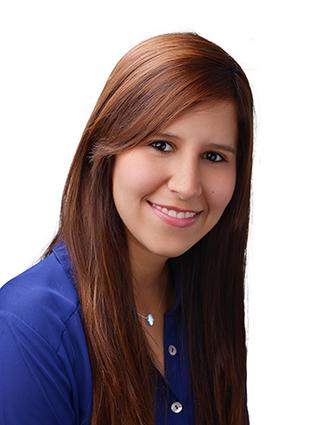
In this issue of InSession, we had the honor of interviewing longtime FMHCA member, John Davis John is a marriage, family, and relationship specialist An expert in personality disorders, especially Narcissistic Personality Disorder in men, he is a Florida Licensed Mental Health Counselor with a boutique private practice in downtown Delray Beach, FL His unique focus is on building and repairing relationships, especially with families, some with addiction issues. John skillfully guides couples and individuals impacted by life stressors such as aging and infidelity, especially related to alcoholism, substance abuse, and personality disorders.
John is a graduate of The University of Georgia at Athens, obtaining his master’s degree from The University of West Georgia at Carrolton He completed a three-year residency at The Samaritan Center of South Florida in Fort Lauderdale, a non-profit, faith-based, non-denominational counseling center John's career as a psychotherapist spans an eclectic blend of personal development skills, including Gestalt, Psychodrama, Cognitive Behavioral and Acceptance Commitment, and Hypnosis including Rapid Trauma Resolution and Eriksonian Hypnotherapy. John is a certified Hypnosis and EMDR practitioner working with a broad spectrum of clients, guided by the groundbreaking work of Dr. Francine Shapiro and Dr. Bessel Van der Kolk, MD.
He is currently President of the Mental Health Counselor's Association of Palm Beach, a Delray Beach based non-profit dedicated to serving the interests of mental health professionals in Palm Beach, Broward and Dade counties John is the 2020 Florida Mental Health Counselor's Outstanding Community Service Award winner. Under his guidance, the Mental Health Counselor’s Association of Palm Beach was chosen as Chapter of the Year for 2022.
What inspired you to pursue a career in mental health counseling? Did you always know you wanted to be a counselor?
I had good teachers early on, a few of which were psychologists. They were the ones who encouraged me to pursue the field. I started by experimenting with different courses and I became
very interested in philosophy which also guided me. I started studying experimental psychology but eventually turned toward clinical psychology
What inspires you today?
I love to help people grow and find answers to their big life questions For example, helping with unwanted behaviors and addiction It is satisfying watching people change their lives
You have expanded your career into serving other counselors via your local FMHCA chapter, please tell me about this expansion and how it came to be.
I was first introduced to FMHCA in 2008 by Dr Denny CecilVan Den Heuvel and influenced to join by the late Dr Peggy McNeil. I started as a participant and realized that having lunch with my colleagues and discussing cases was fun and interesting. I slso discovered this helped me grow my business! I took over my chapter in 2015 after being appointed by pastpresident, Jenny Estrada.
Did your career as a counselor help you at all in this leadership position?
Yes. Customer service is important to me - both with our members and with my clients. I want to solve problems and make people laugh. When people are happy and laughing, they are connecting and learning- two important things to a local chapter.
Does this attitude represent your leadership style as well?
I'd say so. I am the same person in a meeting as I am facilitating membership growth.
What were some of the biggest challenges you faced in running your local chapter so far? How have you overcome them?
By continuously generating enthusiasm! People are busy and tend to be reluctant to invest in workshops so we had to counter this by generating excitement around speakers
What is your advice to someone wanting to start a local chapter in their area, what would you share with them?
Start by making connections with people you know who are interested in joining, attending meetings, gaining continuing education credits, and learning The first meeting should be a networking lunch so that everyone can familiarize themselves with one another and get excited.
To keep meetings alive, I recommend finding an interesting speaker and topic. Events create a draw to the association. Lastly, it takes money to run an association. Right away you should find sponsors that value and will pay for the exposure that your group will provide. Use this money to make more money in the beginning stages of the association. Create a website, purchase necessary materials, hire staff, etcetera.
Can you describe some of the most impactful initiatives or programs that the MHCAPB has undertaken in recent years, and how have these efforts benefited the mental health community in this area?
Part of our association is using money generated from membership, events, and sponsorships to strengthen our community through other non-profit organizations. We are able to donate to organizations like Professionals United, Vita Nova, The Lord's Place, and more. Pooling resources can go a long way in the community.
With all the success MHCAPB has had, what is next for the organization?
Populating our membership and events with upcoming counselors (Registered Mental Health Counselor Interns and current graduate students) We are doing this though our local universities We want to gather strong volunteers
and give them to latitude to express their ideas and grow their leadership skills
John will go on to grow and reinvest into his private practice and his hobbies If he is passionate about anything like psychotherapy- it is his piano!
We thank John for taking the time to share his knowledge and story- having him as a pillar in our community is refreshing and appreciated here at FMHCA.
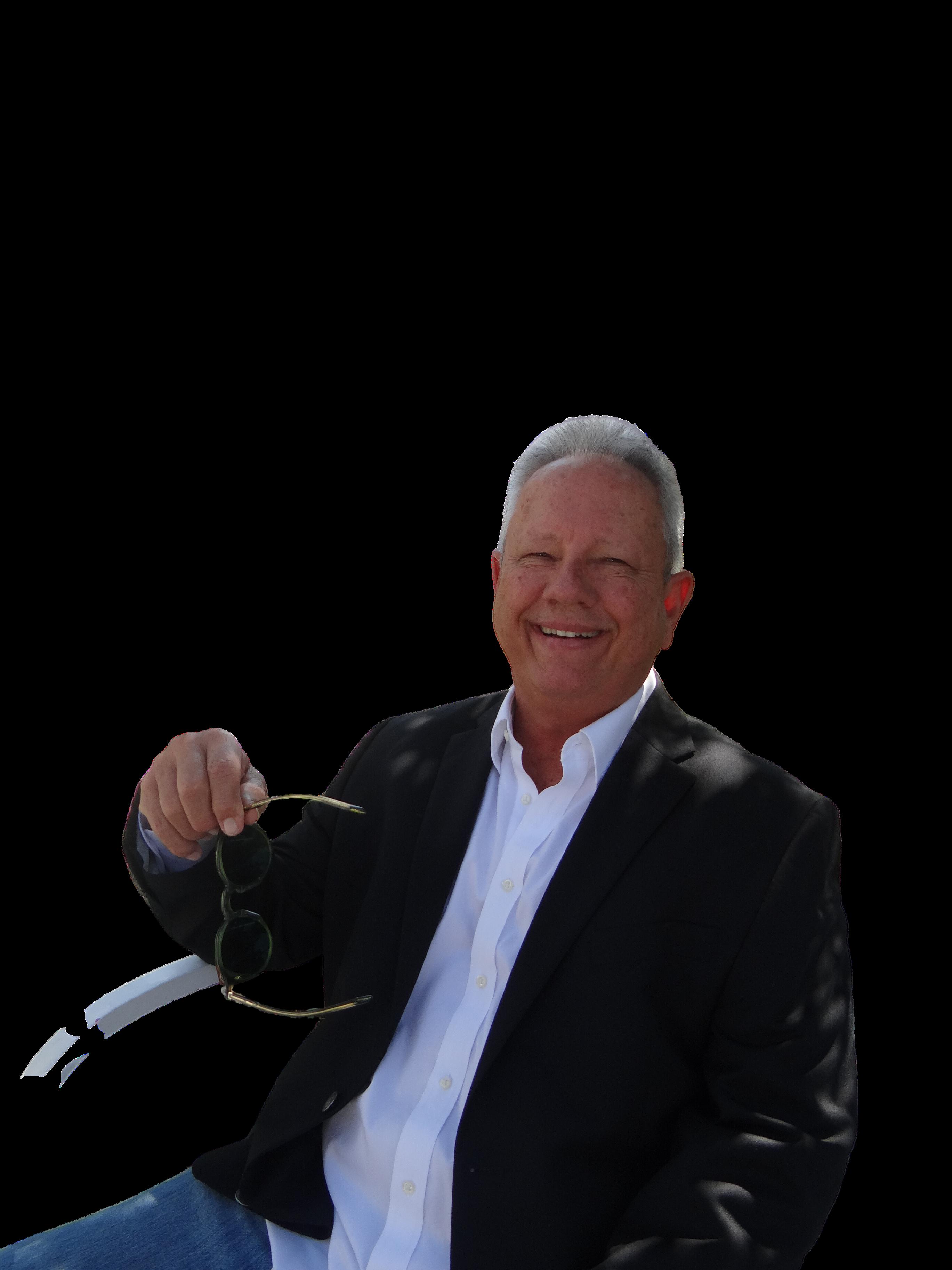

Should you copyright your therapeutic materials? Three factors for therapists to consider.
As soon as you commit your own work to some sort of medium, like a worksheet or training manual, it is considered copyrighted In short, you have basic protection for most professional things you create and record “Copyright is a type of intellectual property that protects original works of authorship as soon as an author fixes the work in a tangible form of expression” (US Copyright Office, 2023). There is nothing you need to do further to establish your ownership. However, you do have the additional option of officially registering your material with the US Copyright Office. As a therapist, is this a step that would make sense for your practice? Consider these three questions to help you decide.
What do you hope to accomplish with the material you develop?
If you primarily plan to use your materials within your own
practice or with a limited number of other professionals you trust, there may not be a justified need to apply for an official copyright. However, if you’ve developed materials with the intent to publish or widely distribute them, it could be wise to establish your authorship and ownership through official channels. This can prevent others from taking credit for your work and provides contact information for those would like to distribute your work
Many professionals seek to stand out by crafting their personal and professional brand Psychotherapy is no different Having an official copyright issued by the US government conveys status and legitimacy. It also provides a certificate of registration that can be displayed, as well as an identification number that can be included on the registered material when it is distributed. These professional touches can represent an established expertise or allow one to stand out in a crowded
field In turn, this can bolster one’s brand and generate additional opportunities
Do you anticipate the need for legal protection?
Updating a cognitive restructuring worksheet you developed to include your practice logo is unlikely to result in a legal battle over ownership or distribution However, if you’ve written a treatment manual for anxiety that presents groundbreaking new techniques, you should be wary of unauthorized copying of your work. In that case, it might be warranted to have some enhanced legal protection. In order to sue for copyright infringement, you will need to have officially registered your material with the US Copyright Office. Without that protection, you have little personal recourse if your work is plagiarized. With an official copyright, you can also register your material with the US Customs Office to protect against pirated copies of your work being imported.
For many therapists, there may not a foreseeable need to formally register a copyright However, there are professional and legal benefits from doing so that could translate to increased opportunities if you plan to share your therapeutic materials more widely. There is also little downside as the application process can be done online and costs less than $100.
US Copyright Office (n.d.). What is copyright?. What is Copyright? | U.S. Copyright Office. https://www.copyright.gov/what-is-copyright/


 Written By: Heidi Brescher, LCSW
Written By: Heidi Brescher, LCSW
Heidi
Brescheris an LCSW in private practice
Her background is in acute residential treatment and well as case management with forensic clients She lives and works in Southwest Florida

Because of the generosity of our donors, FMHCA's Registered Mental Health Intern Licensure Exam Scholarship covered three of our Student Member's Licensure Exam Costs this application period!
Our Registered Mental Health Intern Licensure Exam Scholarship is now open though December 1st, 2023 If you would like to make a donation to the Registered Mental Health Intern Licensure Exam Fund, please click here
Alysha Palacio is a Belizean woman currently residing in Tampa, FL Alysha is a Registered Mental Health Counselor Intern working at her private practice Joy Harvesting Inc She provides strength-based and affirming care for trauma survivors and those managing significant life stress Alysha uses a systemic, relational, and culturally affirming lens to assist clients In her free time, Alysha enjoys baking various goodies

Rajon is a Registered Mental Health Counselor intern and is particularly interested in working with individuals struggling with anxiety, depression, and trauma-related issues Rajon believes in empowering individuals to develop healthy coping strategies, gain insight into their patterns of thinking, and build resilience In addition to her clinical work, Rajon is passionate about reducing the stigma surrounding mental health and is actively engaged in developing a focus group for women to promote mental well-being

Maryann Dernlan is a Registered Mental Health Counselor Intern at Oasis Counseling Center in West Palm Beach, FL She believes that mental health is health - every person can benefit from counseling and spending time supporting their mental wellbeing in addition to their physical health She enjoys working collaboratively with clients and considers it a privilege to sit with them in their pain, to celebrate their triumphs, and to have the opportunity to compassionately challenge them to modify their thinking and behavior to achieve a greater level of wellness
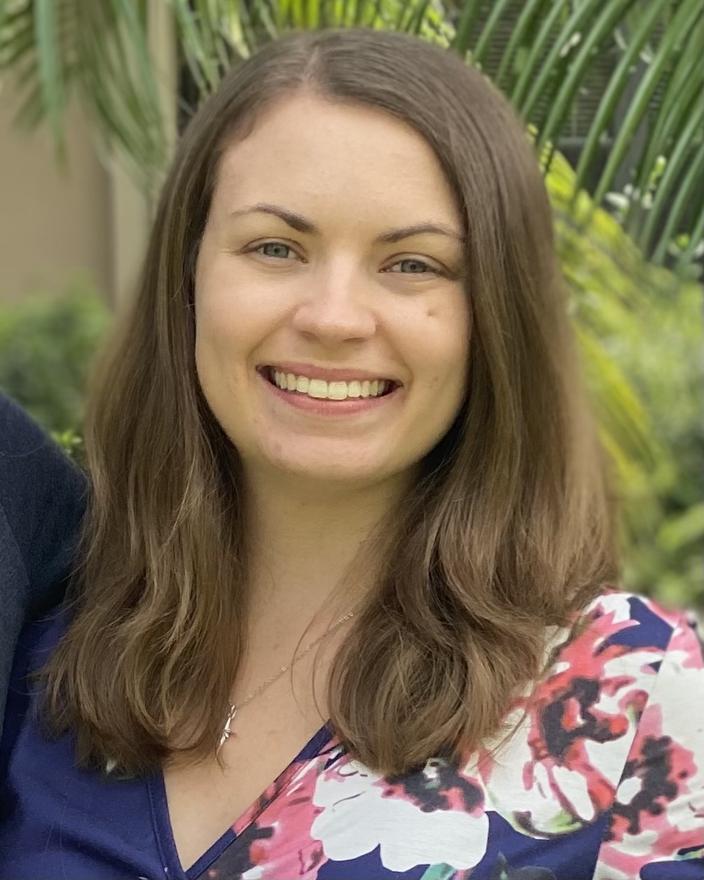 AlyshaPalacio
MaryannDernlan
RajonO'Quinn
AlyshaPalacio
MaryannDernlan
RajonO'Quinn


Artificial Intelligence (AI) is transforming the landscape of mental health
As mental health professionals, it is important for us to embrace it and be well-informed of current developments This new technology has the potential to revolutionize mental health care, and we need to be prepared to use it to its full potential These new approaches can lead to more personalized and effective treatment approaches.
AI-powered tools can be used to improve remote mental healthcare. This can be especially beneficial for people who live in rural areas or who have difficulty accessing transportation. With AI powered tools, therapists have the potential to provide better personalized mental health care to their clients
Woebot is one tool that therapists are using to provide clients with support outside of sessions. This AI-powered chatbot provides users with cognitive-behavioral therapy (CBT). Woebot uses natural language processing to converse with users, providing support and guidance. Users can interact with Woebot anonymously and receive personalized help. Another company called Ginger offers an AI-powered therapy service that can be accessed through a smartphone or computer. Ginger users can connect with a therapist via video chat or text message This service is available 24/7, making it a convenient and accessible option for people who need mental health support
AI is also helping mental health professionals make more accurate diagnoses and develop personalized treatment plans. For example, machine learning algorithms can analyze large
amounts of data to identify patterns and insights that help diagnose and treat mental health conditions more precisely One study published in the journal Nature Medicine found that a machine learning algorithm was able to identify patients with depression with 90% accuracy. This is significantly higher than the accuracy of traditional diagnostic methods, such as clinical interviews.
Another example of AI use in the field is Cerner Millennium, an electronic health record (EHR) system that uses AI to identify patients at risk for suicide Cerner Millennium uses machine learning algorithms to analyze data from patient records, such as demographics, medical history, and medication use This data is used to create a risk score for each patient By analyzing vast amounts of patient data, Cerner Millennium can identify patterns and risk factors that may not be immediately apparent to a human clinician. This allows for earlier intervention and more targeted treatment, ultimately saving lives. As technology continues to advance, it is likely that we will see even more sophisticated tools for suicide prevention in the healthcare industry. This innovative technology has revolutionized the way healthcare providers identify and treat patients at risk for suicide.
Besides the importance of ensuring that AI-powered tools are accurate and reliable, we also need to be mindful of the potential for AI to be used in harmful or discriminatory ways. One major area of concern for many mental health practitioners is the potential for privacy and trust violations. AI-powered tools collect vast amounts of data from users, much of which is protected healthcare information (PHI). PHI is highly sensitive and needs to be protected in accordance with the Health Information Portability and Accountability Act (HIPAA). HIPAA law violations can result in significant financial penalties and even imprisonment, depending on the severity. Developers and healthcare providers must prioritize patient confidentiality and take the necessary precautions to prevent unauthorized access or disclosure
Overall, the benefits of using AI in mental health care outweigh the challenges The incorporation of artificial intelligence into mental health care is a positive development that has the potential to improve the lives of millions of people. As AI technology continues to develop, we can expect to see even more sophisticated and effective AI-powered tools available to improve mental health outcomes. Learn about AI and how it can be used in mental health care. There are many resources available to help you learn about AI, such as books, articles, and online courses.
Other ways to stay up to date on the latest developments in AI are to attend conferences and workshops that focus on AI in mental health care Attending these events can help you stay informed about the latest trends. Experiment with AI-powered tools to see how they can be used to help your clients. Collaborate with other mental health professionals who are using AI. Networking with other mental health professionals who are using AI can help you learn from their experiences and share your own.
The future of AI in mental health is promising. AI-powered tools have the potential to revolutionize mental health care by making it more accessible, affordable, and effective. As technology advances, we can expect to see even more widespread use of AI in mental health care In addition to the benefits mentioned above, AI-powered mental health tools can also help reduce stigma and discrimination By providing people with access to mental health care in a confidential and anonymous way, AI can help break down the barriers that prevent people from seeking help.
Abd-Alrazaq, A , AlSaad, R , Shuweihdi, F , Ahmed, A , Aziz, S , & Sheikh, J (2023, May 5) Systematic review and meta-analysis of performance of wearable artificial intelligence in detecting and predicting depression. Npj Digital Medicine, 6(1).
https://doi.org/10.1038/s41746-023-00828-5
Written By: Sara Arce, LMHC, MCAPSara Arce is a licensed mental health counselor, a qualified supervisor in mental health, and a .master-certified addiction professional with over 15 years of experience working with individuals, families, and couples She is bilingual in English and Spanish

Sara's treatment philosophy is integrative, which means she uses multiple models She understands the struggles of being in the "sandwich generation" and works well with those seeking personal growth, career satisfaction, breakup recovery, grief, loss, and overall life stress management

The Baker Act
72 Hours That’s the standard “holding time” for a patient hospitalized under a Baker Act status. Which means they either came to the hospital by ambulance, by law enforcement, or brought in by someone concerned enough about their wellbeing to decide that the person needs a psychiatric evaluation. Most people don’t know this, but even if a patient comes to the hospital voluntarily, they can still be converted to a “Baker Act” in the great state of Florida. Another piece of information most people are missing is the fact that if they present to the emergency department, their Baker Act clock doesn’t start until they are medically cleared to come to the fourth floor. The behavioral health floor. Once moved to the fourth floor, a technician will perform a “skin check” and write down piercings, tattoos, and any marks/lesions/bruises that are apparent or not so apparent on your body Then the technician goes through every piece of property that you have on your person and documents your belongings The next step is to sign consent forms You’re asked to consent to treatment, but what are you even consenting to?
You’re required to sign a consent form for every medication prescribed. You’re required to sign a general consent for treatment. However, most patients have zero understanding of what a Baker Act is, the process, the difference between voluntary versus involuntary status, and the requirements to be considered competent or incompetent And most patients (and some residents) use the phrase “Voluntary Baker Act” which is a complete contradiction
After 72 Hours
If you are admitted to a behavioral health unit, be advised that this is an acute setting 72 hours is usually the amount of time you’re expected to be on the floor. However, if your 72 hour “holding period” (which is exactly what it is) is up and your psychiatrist believes that you are still a danger to yourself or others or that discharging you will have extreme negative consequences for your health, then they have the ability to convert you to a “32 status.” If you’re converted to this status, this means that two psychiatrists have agreed that if you are discharged, there will be negative consequences severe enough to warrant going to mental health court to ask a judge to rule over whether or not you will be legally required to stay in the hospital Mental health court involves you, a public defender, a guardian advocate (if requested,) an attorney for the hospital, a psychiatrist, and perhaps a social worker and/or a Baker Act Coordinator The judge usually hears from all parties that have been sworn in to testify and makes a ruling of whether or not it is the court’s opinion that you have whatever diagnosis the psychiatrist proclaims you do and decides whether you need to stay in the hospital for longer. In my experience, psychiatrists request an additional 4-6 weeks for treatment.

So it is an entirely plausible scenario that you bring yourself voluntarily to the hospital, stay for 72 hours, request to be discharged and instead of being discharged, you can have your legal status changed to involuntary, be forced to go to court to plead your case, and if the judge rules in favor of the psychiatrist, you can be forced to stay in the hospital for weeks. It’s also possible that if you have refused medications up until this point (which is your right,) a guardian advocate can be appointed to make medical and mental health decisions on your behalf including you taking prescribed medications. And if you refuse oral medications, they can consent to intramuscular injections on your behalf
THAT is the best we have come up with for acute mental health care? Seriously? We went from treatments such as bloodletting, lobotomies, trephination, isolation, insulin comas, metrazol therapy, and ECT (which is still widely used today) to seeing patients for 72 hours and prescribing psychiatric medications that have such severe side effects that we have to prescribe them additional medications to offset the side effects of their antidepressants and antipsychotics?
The behavioral health unit I work on has 25 beds. At any given point, I can-with confidence-assume that if 25 patients are on the floor, a good estimate is that at least 9 have a Bipolar diagnosis, 8 have a Schizoaffective diagnosis, 2 have a
Schizophrenia diagnosis, 3 have Brief Reactive Psychosis (mostly induced by substances,) and 3 have Major Depressive Disorder. Based on the feedback provided to me by patients in my group therapy sessions and individual meetings, most of them are unaware of their diagnosis, unaware of what medications they are on and why, and have a poor understanding of the risks of taking psychotropic medications long-term. And you might think that this is biased and that they aren’t being active participants in their treatment. Surely their psychiatrist has discussed all of the above with these patients and they are educated about their treatment right?
Every morning myself, medical students, a resident, and the attending meet with all patients assigned to the attending. I have worked with this doctor for 6 months and the number of times I have heard the doctor discuss side effects with patients can be counted on one hand and each time it has been discussed only after the patient specifically asked about side effects. Most of them don’t ask. It is also disappointing to me the number of patients who don’t ask what their diagnosis is-their diagnosis is what justifies to insurance companies them being in the hospital and dictates what medications they are prescribed. Few ask. The majority trust the white lab coat as the expert and don’t question the doctor’s judgment
Because this is an acute setting I don’t have the time to educate every patient on the history of direct-to-consumer advertising (which is only allowed in the U.S and New Zealand) and how pharmaceutical companies influence clinical trials which influence what medications are prescribed by doctors which influence how patients are treated and diagnosed I don’t get the time with patients to explain that the DSM was created by a bunch of psychiatrists-mostly white and male psychiatristswho argued over what diagnosis should be included and which ones should be omitted and finally arrived at a consensus. I can’t go over with patients the fact that when pharmaceutical ads were initially created they were targeting “depressed” stayat-home housewives who needed to resume household duties and “agitated” African Americans whose behavior needed to be “controlled.” This has no doubt contributed to a disproportionate amount of African Americans being diagnosed with Schizophrenia and an excessive amount of women being prescribed antidepressants. Our present day understanding of diagnosis and how we understand mental illness has been significantly influenced by racism, sexism, and let’s not forget that homosexuality was in the DSM up until 1973 That’s only 50 years ago
According to the Depression and Bipolar Support Alliance (and most other sources) Bipolar Disorder affects about 2 6% of the U.S population. Yet, about 36% of our patients carry this Bipolar diagnosis-what’s going on here? Is the Orlando area just a special place full of unique Bipolar patients? Or is it possible that the mental health field has medicalized mental illness to the point of overdiagnosis, overmedication, and lack of serious consideration for the patients and families affected by our current psychiatric standards and view of “wellness?”
The question needs to be asked because not only do I see an unlikely number of truly Bipolar patients and those being forced to stay in our hospital, I also see the harmful effects psychotropic medications have on patients on a daily basis. The amount of patients with extrapyramidal symptoms I see is disturbing. I see patients who have tremors that are uncontrollable, patients whose tongue protrudes involuntarily every minute, patients who appear to be nodding their head who aren’t doing so intentionally, and patients with eye twitches and leg spasms. I see patients who tell me they feel like they are crawling out of their skin and have to constantly pace to try to alleviate this feeling. I’ve seen patients over 60 years old who have been prescribed 2-4 milligrams daily of a benzodiazepine for years who were never told of the potential consequences of this course of “treatment” for their anxiety I’ve seen chronic pain patients prescribed high doses of opioids in conjunction with high doses of benzodiazepines despite the dangerous risk of respiratory distress I’ve also heard this concern over and over again which haunts me, “I just don’t feel like myself since I started taking this SSRI-I feel numb and detached.”
Again, I’d like to ask, is this the best we’ve come up with since severing people’s frontal lobes?
We’re not educating patients on medication risks, diagnosis, metabolic syndrome, extrapyramidal symptoms, the importance that diet and exercise have on mental health, and alternatives to psychiatric medications. We have medicalized every aspect of mental health and it has gotten us where? We’re not patient-focused, we ' re medication-focused.
We take 72 hours to create a lifelong patient And we are failing
Written By: Lexi Clyne, MALexi is currently a social worker at a behavioral health unit in Orlando, Florida and specializes in substance abuse She has five years of experience in outpatient, intensive outpatient, an in-patient settings
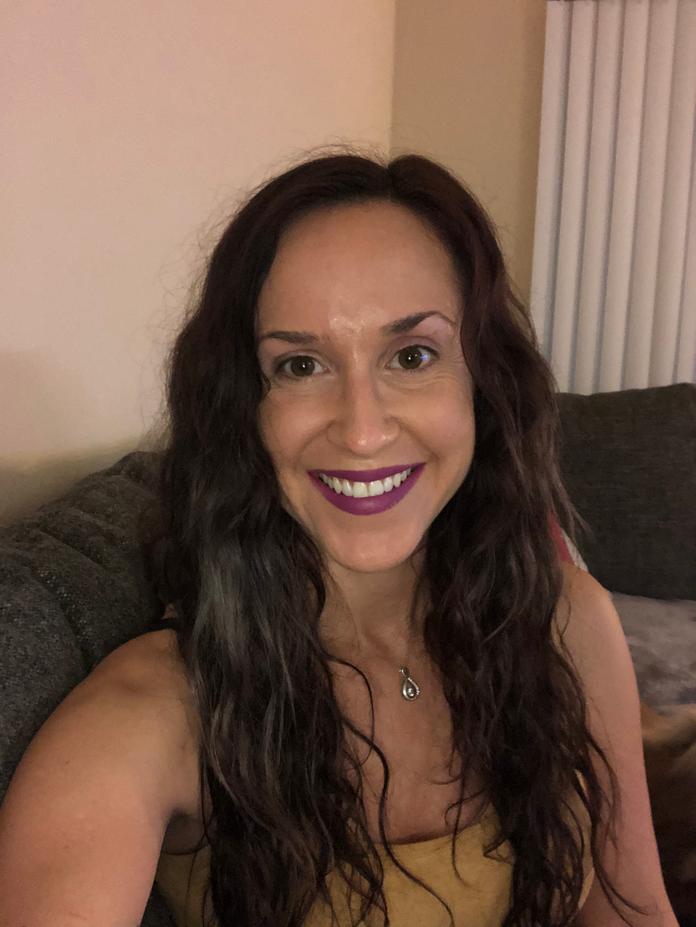
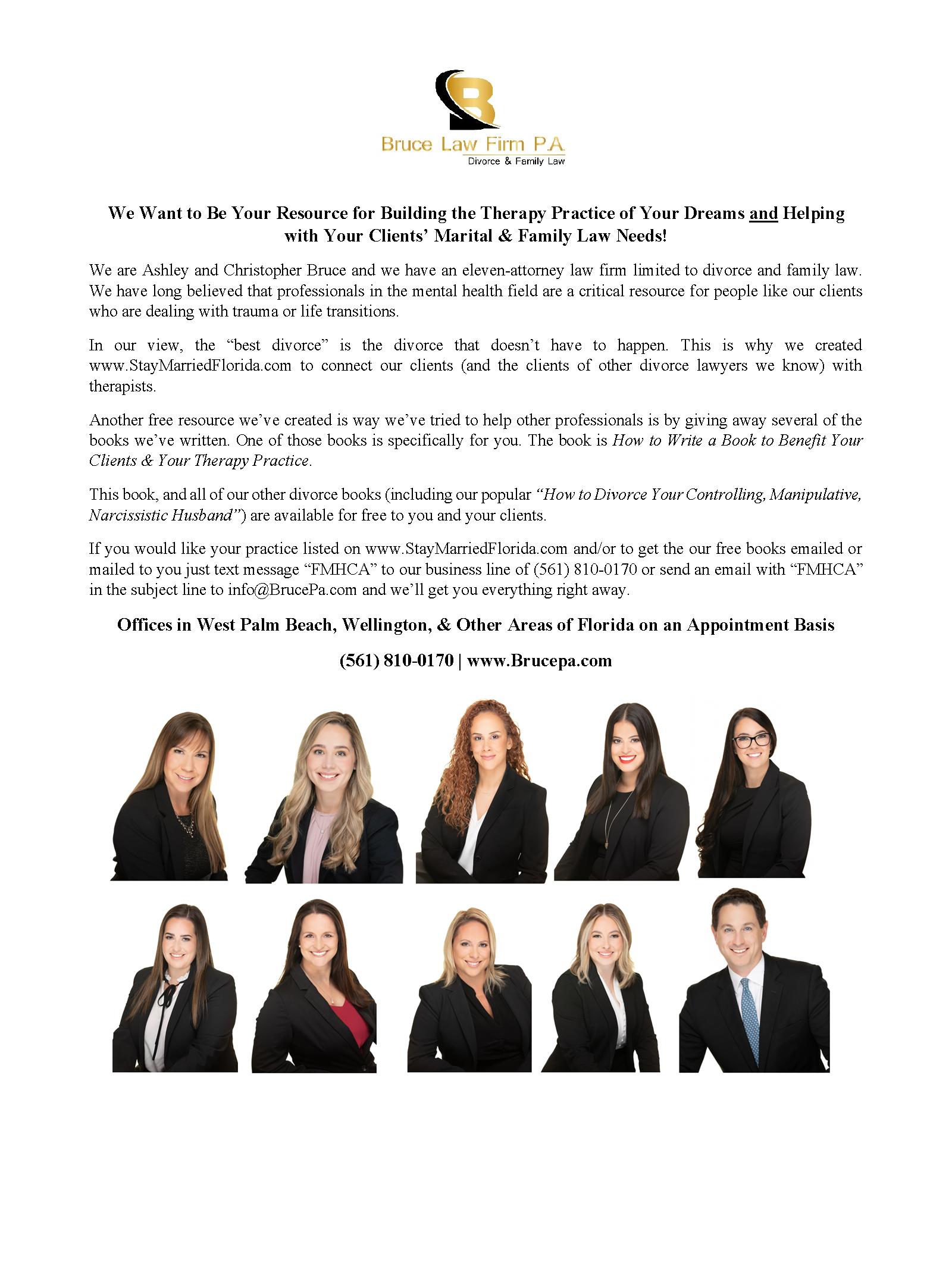
Professional Experience Article

The work that Clinical Mental Health Counselors (CMHCs) provide is ongoing which supports individuals and families. As a university professor, I will often interview potential students who identify their prompting events which make them consider clinical mental health counseling as a profession. They indicate their desire to become a CMHC based on a passion for others and will often say “If I could just help one person, everything will be worth it” While I believe the potential student is very sincere, I usually chuckle at this and provide a response like “On your first day of your internship, during the first hour you’re there, you’re going to help one person What are you going to do then?” While this statement is often meant to conceptualize helping from an ongoing perspective, our work truly goes beyond the individual, group, and family services we provide to impact local, state, national, and international policies. There is a transition which usually occurs through the educational process where the student identifies that our work is not “just talking” but is lifesaving and absolutely necessary especially during this time.
While we are moving beyond the pandemic, researchers are still trying to fully assess the impact that people will experience going forward. The full and total disruption in daily life was traumatizing for some. As a result, we have seen increased rates of mental health problems, substance use, and increased loss of life across various populations. The demand for treatment has skyrocketed to unprecedented levels. Many states allowed for more flexible laws in order to assist those needing mental health treatment during the pandemic We are seeing some of these laws being rolled back to pre-pandemic expectations This can be confusing for potential clients and counselors who must make adjustments to their practices and agencies
From a national level, AMHCA is continuing to work to advocate for the integrity of the counseling profession as some states have considered laws to end formal licensure for the helping professions (this also includes social workers and psychologists amongst other clinicians). While this is being proposed to help bridge the gap between supply and demand, AMHCA is working
to connect with lawmakers to warn them of the potential dangers of untrained, unverified, unlicensed, and unaccountable individuals attempting to provide treatment to those who are suffering. Our licenses guarantee accountability to the profession and confirm safety to those who need help. The expectations for continuing education beyond licensure supports our ongoing clinical growth and development. Ending or limiting such licensure will have a detrimental impact on the health of the general public. I will often ask “Would you want your child to see an unlicensed surgeon if they needed a kidney transplant?” For those unfamiliar with the work we provide, they may struggle to see the analogy as they see our services as “just talking”.
The work that CMHC’s provide goes far beyond “just talking”. Many CMHC’s employed in hospitals who have worked closely with various specialized medical doctors have often seen limitations which occur in traditional medical treatment. Such limitations can include clients struggling to take medications as prescribed or make behavioral health changes increasing the likelihood of positive treatment outcomes. Many medical doctors are thankful to work directly with CMHCs to help their clients work on various stressors which impact both the mental health and physical health of the client. Our across discipline client focus contributed to clients processing their experiences and making behavioral changes which can improve the quality of their lives and improve their overall physical health These medical doctors will recognize the work that we do to be just as important and just as lifesaving as the work that they themselves are doing
From the national perspective, AMHCA views the work that you do as equally as important as any medical doctor may provide. With increased awareness being brought to mental health

through various media outlets, AMCHA will continue to advocate at the national level and connect with our chapters to provide state support as needed Among this advocacy also includes working with CMS to assure appropriate reimbursement when CMHCs are formally allowed to bill Medicare for mental health services.
While this article started with a somewhat lighthearted experience about future counselors wanting to help at least one person, AMHCA knows that the one person you help is linked with a greater system The work you do not only helps the individual, but has a ripple effect to their family and community AMHCA will continue to advocate for the integrity of the profession and increased reimbursement for our services as our services. We will continue to work for you at a national level as we know you are improving the lives of those you serve, their families, and communities. You are saving lives and we will continue to let the public and lawmakers know your work is just as valuable as any medical service.
Written By: Fredrick Dombrowski, PhD, LMHC, CASAC-M, LPC, LADC, NCC, CCMHC, MAC, ACS, BC-TMH, HS-BCP, ICADC, DCMHSFredrick Dombrowski is the AMHCA President and has extensive experience treating those living with co-occurring disorders since 1998 He has been a supervisor and director for multiple programs including inpatient, outpatient, and forensic treatment Currently a Department Chair at the University of Bridgeport, he is focused on experiential learning through a perspective of cultural humility and an equitable clinical care He has won several awards for his work with marginalized populations

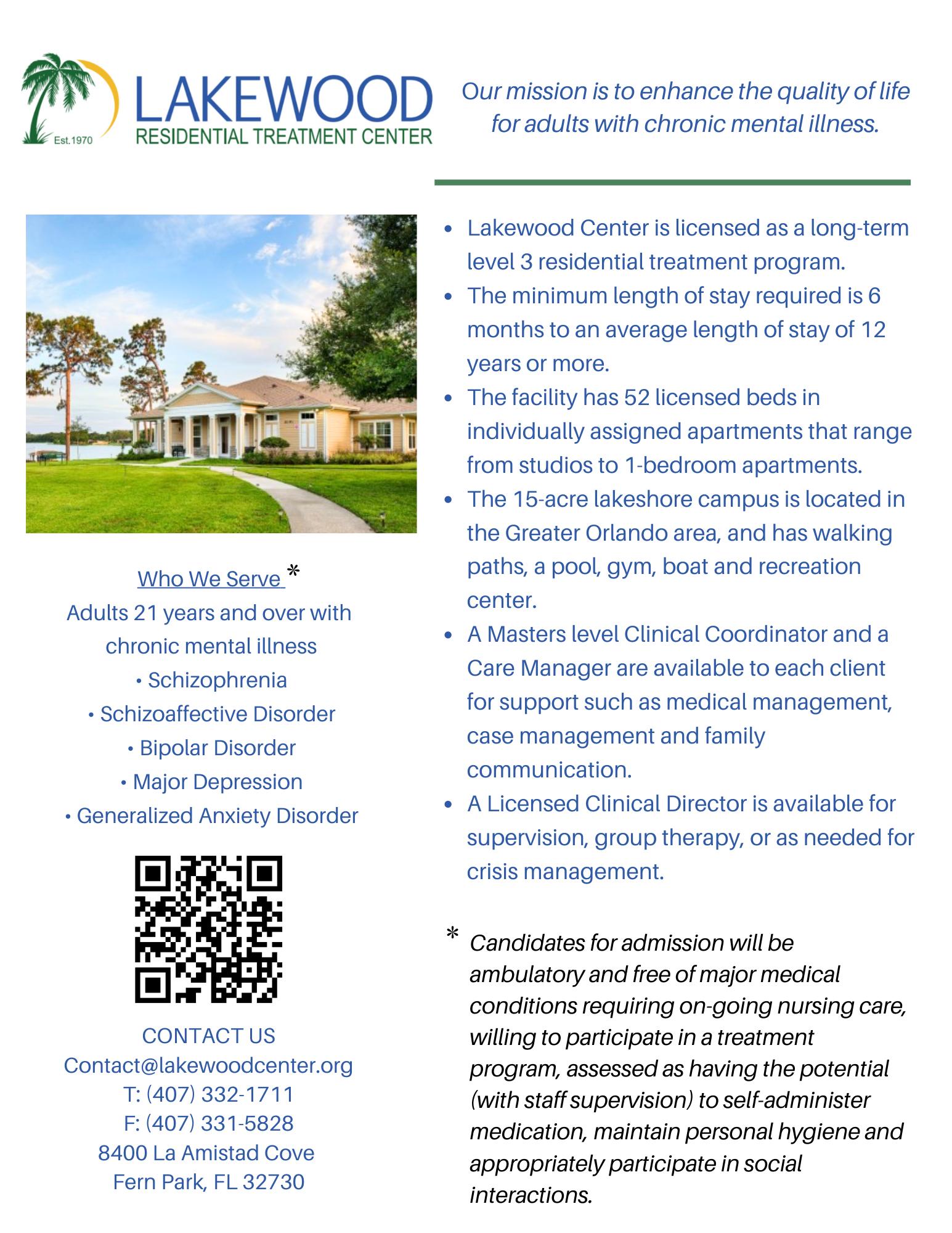
Professional Resource Article
Introduction
Military personnel face distinct challenges and stressors, such as combat exposure, prolonged separation from family, and frequent relocations, which can significantly impact their mental health (Hoge et al , 2004) Traditionally, mental health counseling focuses on symptoms, traumatic experiences, or dysfunctional thought patterns (American Psychiatric Association, 2013). However, alternative transformative psychological models, such as Sydney Banks' "Three Principles" and Aaron Beck's Cognitive Behavioral Therapy (CBT), provide innovative approaches for counseling military personnel.

The Three Principles - Mind, Consciousness, and Thoughtsymbolize the essence of the human experience (Banks, 1998). Mind represents the universal energy and intelligence of life, Consciousness allows awareness of existence, and Thought is
the creative agent shaping our subjective reality. These principles offer an empowering perspective on resilience and well-being, asserting that our psychological experiences are created from within (Banks, 2001).
Integrating the Three Principles into mental health counseling can have profound benefits. Military personnel, through understanding these principles, can comprehend that distressing thoughts and feelings are transient and not a fixed aspect of their identity. This recognition fosters resilience, a critical asset in the face of unique stressors military personnel often encounter (Kelley, Pransky, & Lambert, 2014).
Moreover, the Three Principles emphasize an individual's inherent resilience and mental health, which may be obscured by traumatic experiences or intense stress. This understanding promotes psychological recovery. Counselors can leverage the Three Principles to focus on the individual's inner capacity for
change and resilience rather than solely on trauma or stressful events Such an approach can lead to a more empowering, nonpathologizing therapeutic relationship, beneficial for military personnel who may be wary of the stigma associated with mental health services (Greene-Shortridge, Brit, & Castro, 2007).
Aaron Beck's Cognitive Behavioral Therapy (CBT) shares similarities with Banks' Three Principles, but they diverge in significant ways. Both models emphasize the role of thought in shaping an individual's reality. CBT postulates that dysfunctional thinking patterns lead to maladaptive behaviors and emotions, and it aims to challenge and change these thought patterns (Beck, 2011).
Like the Three Principles, CBT encourages individuals to understand their capacity to change their thought processes
However, CBT typically involves a more structured, problemfocused approach, often targeting specific symptoms or issues. In contrast, the Three Principles offer a broader, more philosophical perspective, emphasizing an individual's innate mental health and capacity for resilient thought, regardless of circumstances (Banks, 2001).
While both approaches can be beneficial, their suitability may depend on the individual's needs and preferences For some military personnel, CBT's structured, problem-focused approach may provide practical tools to manage specific symptoms or challenges For others, the more philosophical, resilience-oriented approach of the Three Principles may resonate more deeply, providing a paradigm shift in understanding their mental health.
Post-traumatic Stress Disorder (PTSD) is a common mental health challenge among military personnel (Hoge et al., 2004). The Three Principles can be particularly beneficial in PTSD treatment. By understanding the transient nature of distressing thoughts and the innate capacity for resilient thought, military personnel with PTSD can reconnect with their underlying wellbeing and foster recovery (Kelley, Pransky, & Lambert, 2014).
Interestingly, the Three Principles share common ground with some emerging PTSD treatments, such as Eye Movement Desensitization and Reprocessing (EMDR) Both approaches encourage individuals to observe their distressing thoughts and experiences without judgment or resistance, fostering a shift in their relationship with these experiences (Shapiro, 2001).
Trauma-Informed Care and the Three Principles
Trauma-Informed Care (TIC) is an organizational framework involving understanding, recognizing, and responding to the effects of all types of trauma (SAMHSA, 2014) TIC's principles, such as ensuring physical and emotional safety, promoting peer support, and emphasizing collaboration and mutuality, can create a therapeutic environment where veterans feel safe and supported in exploring the Three Principles (Harris & Fallot, 2001).
When counselors understand and respect veterans' past experiences and potential trauma-related triggers, they can present the Three Principles in a manner sensitive to veterans' individual experiences Thus, TIC can significantly enhance the way veterans engage with Sydney Banks' Three Principles, fostering their innate capacity for resilience and well-being.
While the Three Principles offer a unique perspective on mental health and resilience, they are not without limitations Notably, this approach may not resonate with everyone. Some individuals may find the principles abstract or difficult to understand, and it may not provide immediate relief for acute symptoms or severe distress (Kelley, Pransky, & Lambert, 2014).
Moreover, the Three Principles, while powerful, may not be sufficient on their own for treating trauma, particularly complex or severe trauma Such cases may require more comprehensive and specialized approaches, such as TraumaFocused Cognitive Behavioral Therapy or Prolonged Exposure Therapy, which have strong empirical support for their effectiveness (Foa, Hembree, & Rothbaum, 2007)
While the Three Principles can help individuals understand their capacity for resilience and the transient nature of distressing thoughts, they do not provide specific strategies or techniques for managing acute distress or symptoms. As a result, some individuals, particularly those struggling with severe or acute symptoms, may need additional support or interventions
Incorporating the Three Principles into a comprehensive, individualized treatment plan, which may include other therapeutic approaches or interventions, can provide a more holistic approach to supporting the mental health and resilience of military personnel.
Integrating Sydney Banks' Three Principles into mental health counseling, complemented by a trauma informed approach, offers a transformative strategy for enhancing the resilience of military personnel. Meanwhile, the structured, problemfocused approach of Cognitive Behavioral Therapy offers
practical tools to manage specific symptoms or challenges By recognizing the innate capacity for resilience and the transient nature of distressing thoughts, military personnel can harness their inherent resilience, promoting more effective recovery and overall mental well-being. However, it is essential to consider individual needs, preferences, and the complexity of trauma when choosing an approach.
Note: FMHCA’s Military Services Committee is planning a virtual symposium this Fall Check FMHCA’s weekly updates for information on submitting a proposal
References
American Psychiatric Association. (2013). Diagnostic and statistical manual of mental disorders (5th ed.). Washington, DC: Author.
Banks, S. (1998). The Missing Link: Reflections on Philosophy and Spirit. Lone Pine Publishing.
Banks, S. (2001). The Enlightened Gardener. Mindpress Media.
Beck, J. S. (2011). Cognitive behavior therapy: Basics and beyond (2nd ed.). The Guilford Press.
Foa, E. B., Hembree, E. A., & Rothbaum, B. O. (2007). Prolonged Exposure Therapy for PTSD: Emotional Processing of Traumatic Experiences Therapist Guide. Oxford University Press.
Greene-Shortridge, T. M., Brit, T. W., & Castro, C. A. (2007). The stigma of mental health problems in the military. Military Medicine, 172(2), 157-161.
Harris, M., & Fallot, R. D. (Eds.). (2001). Using trauma theory to design service systems: New directions for mental health services. Jossey-Bass.
Hoge, C. W., Castro, C. A., Messer, S. C., McGurk, D., Coting, D. I., & Koffman, R. L. (2004). Combat duty in Iraq and Afghanistan, mental health problems, and barriers to care. New England Journal of Medicine, 351(1), 13-22.
Kelley, T. M., Pransky, J., & Lambert, E. (2014). Realizing improved mental health through understanding three spiritual principles. Spirituality in Clinical Practice, 1(4), 298.
Shapiro, F. (2001). Eye Movement Desensitization and Reprocessing: Basic Principles, Protocols, and Procedures (2nd ed.). The Guilford Press.
Substance Abuse and Mental Health Services Administration (SAMHSA). (2014). SAMHSA’s Concept of Trauma and Guidance for a Trauma-Informed Approach. Rockville, MD: Substance Abuse and Mental Health Services Administration.
Written By: Maria Giuliana, LMHC, FMHCA Northeast Regional Directo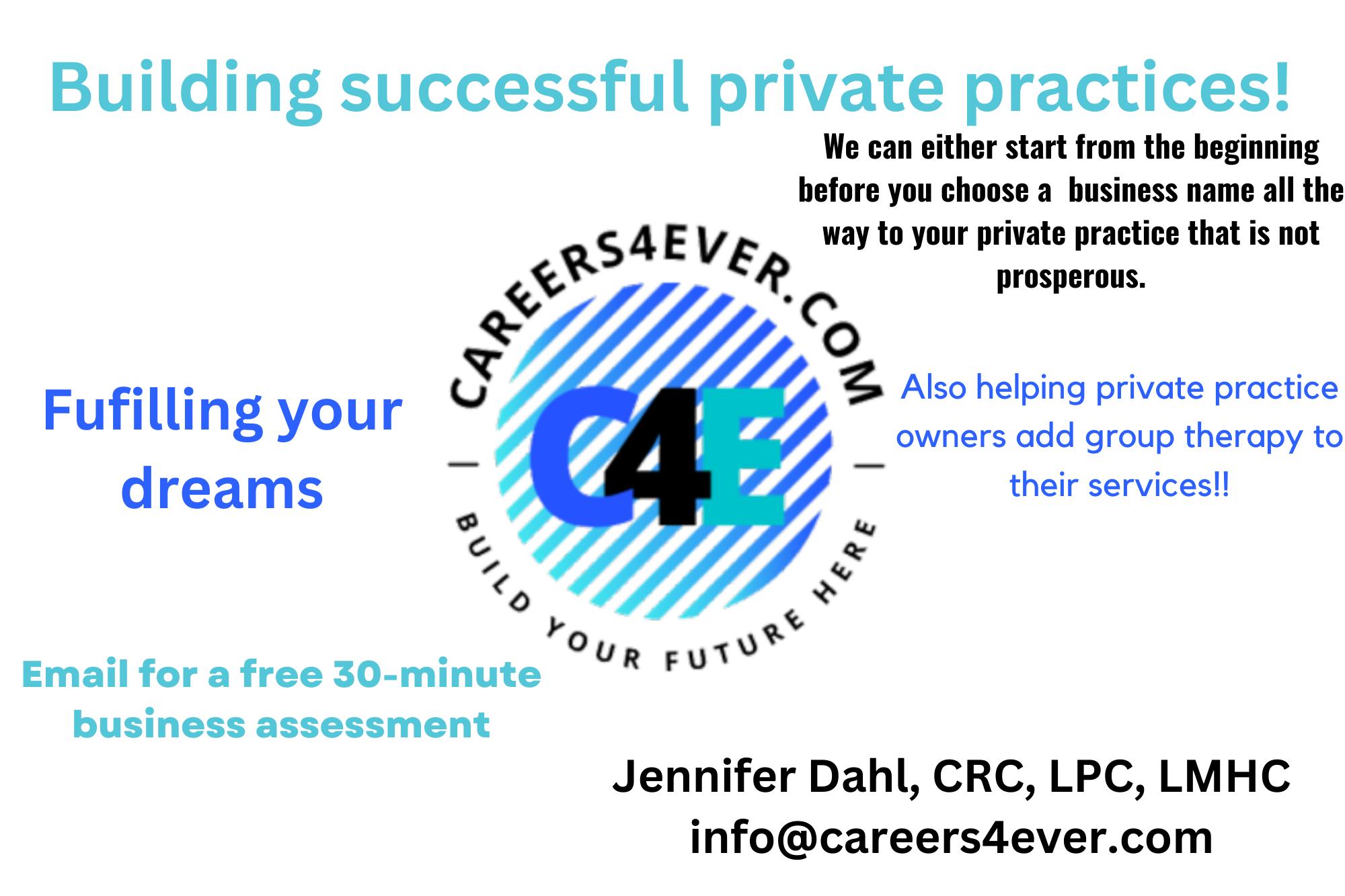
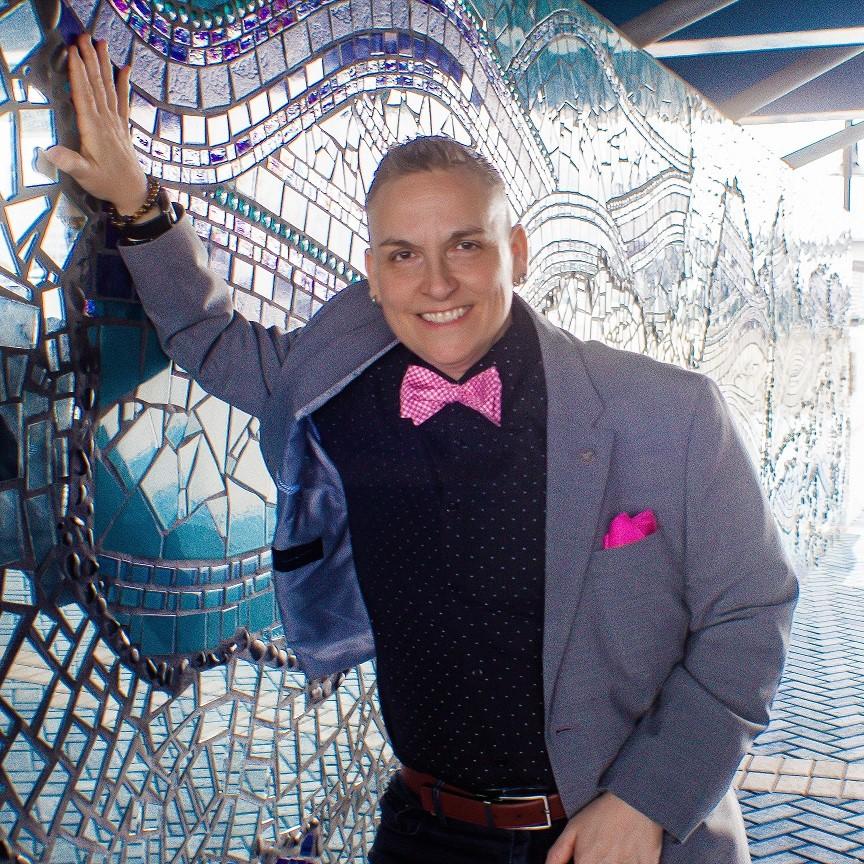
Maria (She/Her) is FMHCA's Region Northeast and the Military Services
Chair She has over 20 years of exp in both military and community se counseling, consulting, and clinica private practice, Beyond The Matte Services LLC, throughout Florida an candidate at National Louis University, completing her dissertation on Exploring the Relationship between Counselor Expertise and Self-Reported Military Cultural Competency among Mental Health Counselors
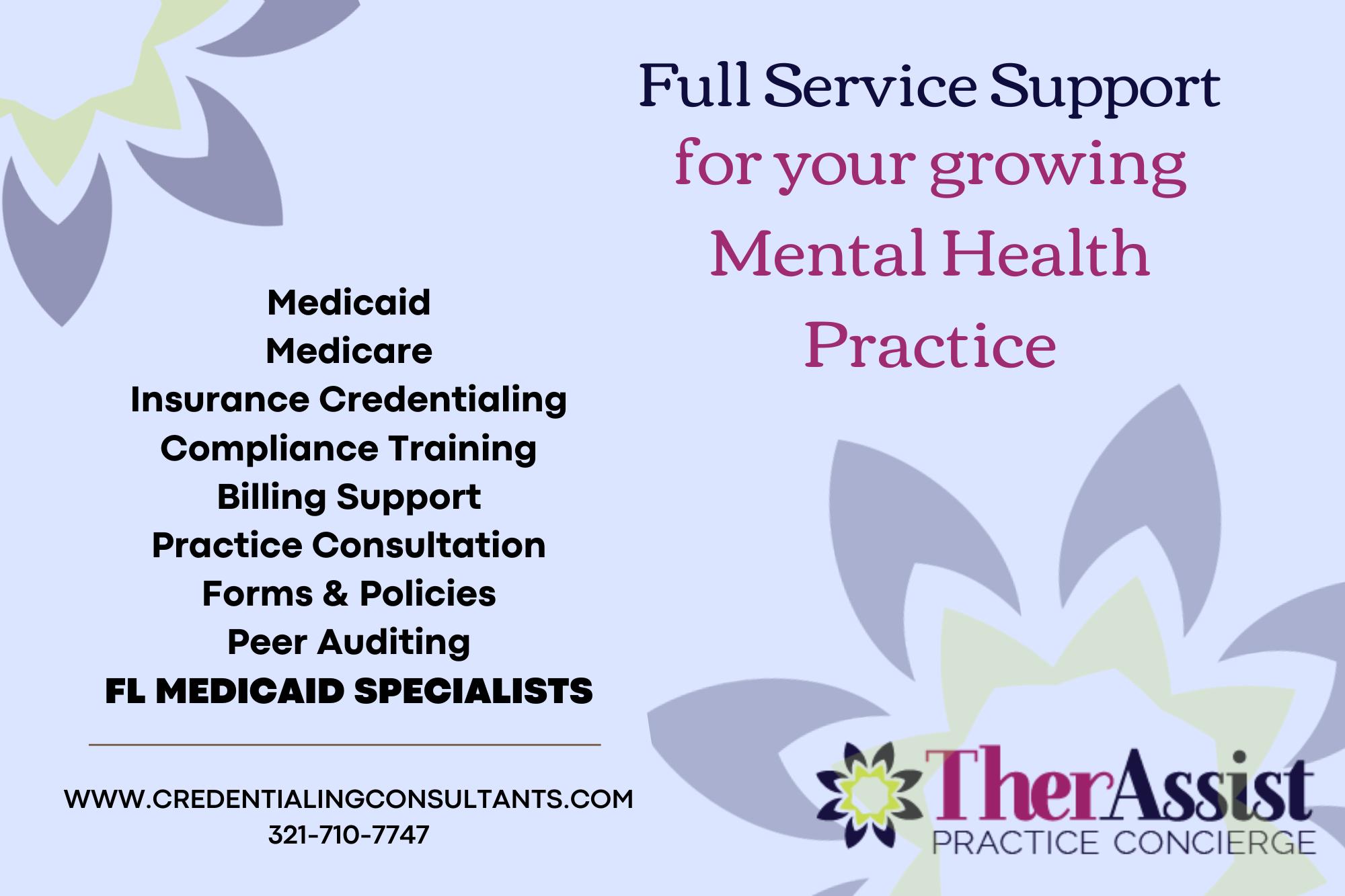

The 2023 Florida Legislative Session concluded in May of 2023 The legislature passed myriad legislation ranging from tort reform to affordable housing and everything in between The Legislature also considered bills relating to professional licensure which could have impacted FMHCA members Universal licensure –
FMHCA worked with legislative sponsors to amend HB 1333/SB 1364, by Rep Koster/Sen Collins Formally titled the InterstateMobility and Universal-Recognition Occupational Licensing Act, the bill required the state to automatically issue an occupational license to an individual provided:
The applicant is licensed by another licensing entity or state;
The applicant has certain work experience in another state or in the military; or
The applicant has a private certification with work experience in a non-licensing state or the military
This would be the case for a person moving to Florida even if his/her credentialing requirements were vastly different in the originating state.
As FMHCA’s members are aware, the Association, along with
the help of last year’s legislative sponsors, has already entered a compact with other states and provides for licensure by endorsement House Bill 1333 could have run afoul of those efforts and may have caused confusion for applicants as well as the 491 board. With that in mind, FMHCA successfully drafted an amendment which created a carve out for MHCs, and with the help of State Rep. Tyler Sirois, the amendment was adopted. Although the bill ultimately failed, its presence in the legislative session highlights the undercurrent thought process that the legislature desires to loosen licensure requirements across the board FMHCA should anticipate similar measures going forward It is our hope that in-roads were made that could help us amend future legislation
Additionally, Rep Juan Porras and Sen Ana Maria Rodriguez passed House Bill 385, fees for the professional counseling licensure compact FMHCA’s priority bill from 2022, which created the licensure compact, left out language allowing the state to collect additional licensure fees from applicants joining the compact. House bill 385 would have created a section to collect the fee; however, the legislation was vetoed by Governor DeSantis.
Governor DeSantis meant no harm to the profession; however, he fundamentally disagrees with new fees being assessed on Floridians The compact will proceed regardless of the veto The state – specifically a state-run trust fund – will be on the hook for paying for the new licensees FMHCA members hoping to join the compact should not be alarmed Florida is still one of the first ten states to join the compact and members should stay tuned regarding the rollout of the compact.
As a reminder, the next legislative session begins in January. It will be considered an early session meaning committees will meet starting in September and legislation can be filed as soon as July FMHCA’s government relations committee is currently working on its 2024 legislative agenda

 Written By: Corinne Mixon, DPL
Written By: Corinne Mixon, DPL
Corinne is a registered professional lobbyis with sixteen years of experience representin clients’ state governmental interests
At Rutledge Ecenia, Corinne represents a broad client base with a particular emphasis on health care practitioners, education and regulated industries and professions She has been instrumental in passing myriad legislation and killing bills which would have negatively impacted her clients

